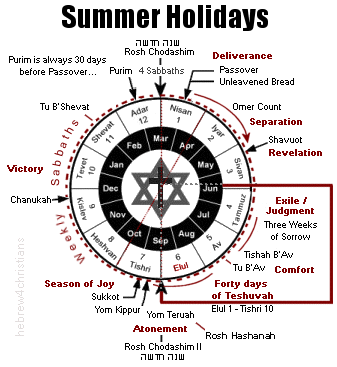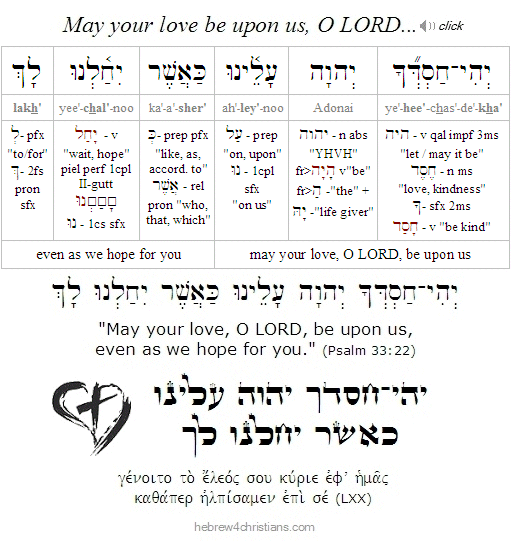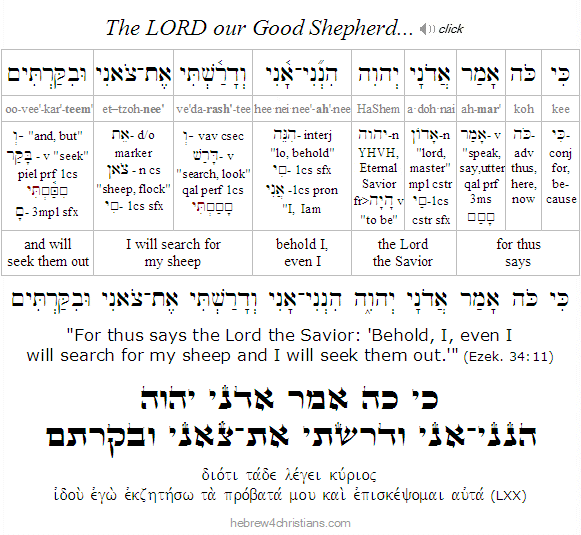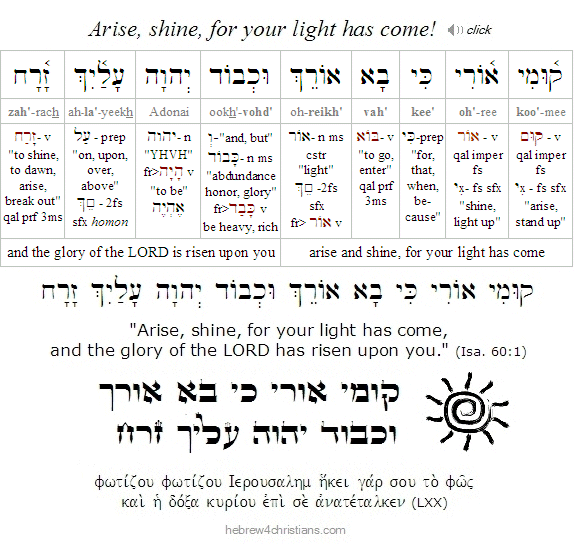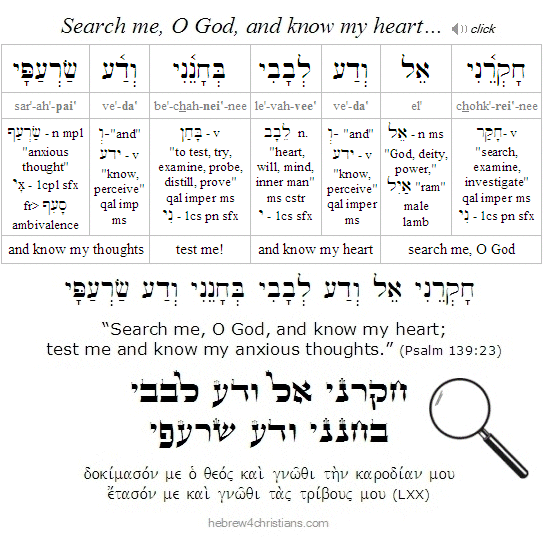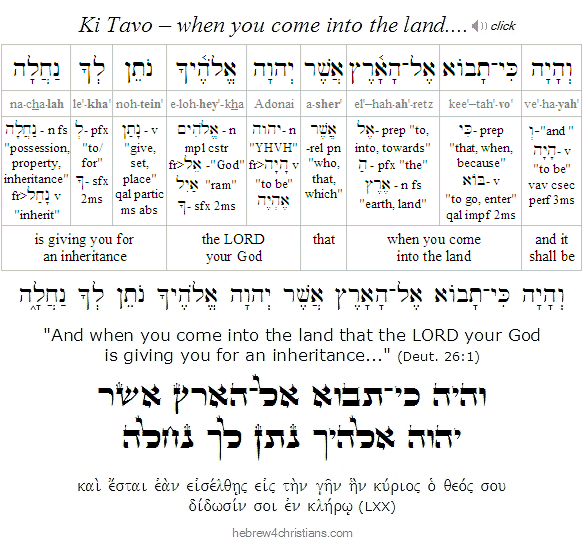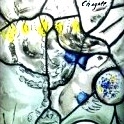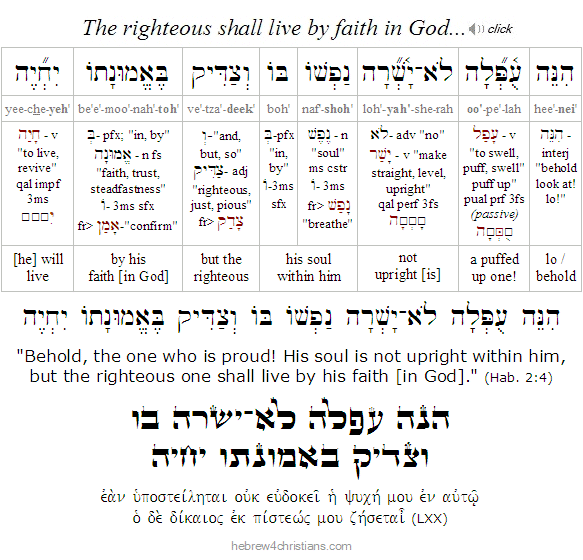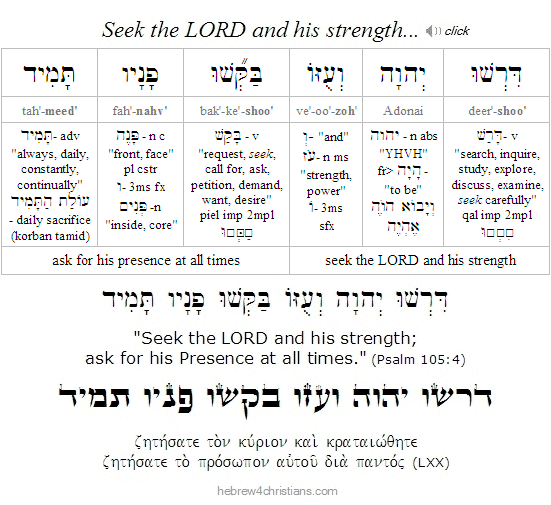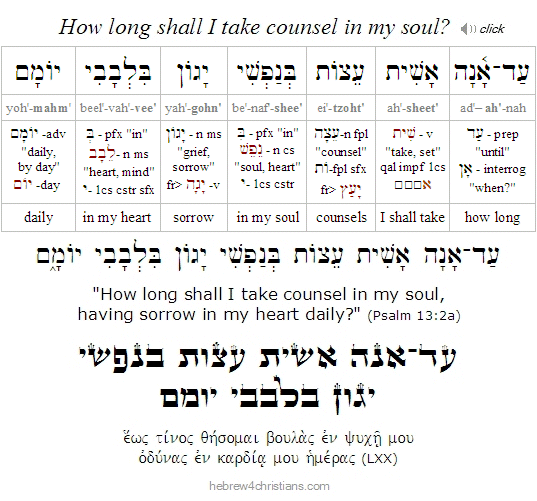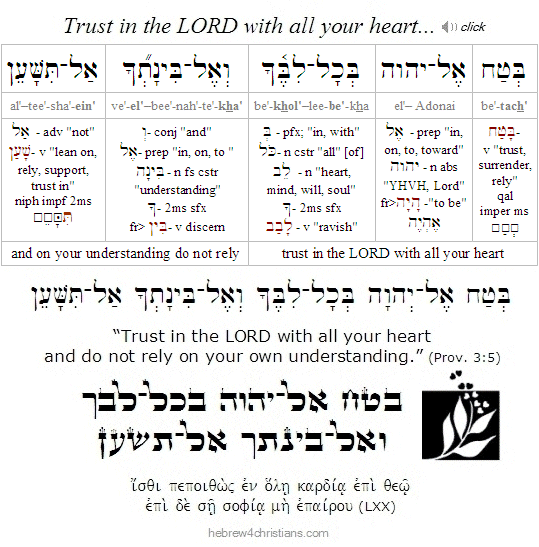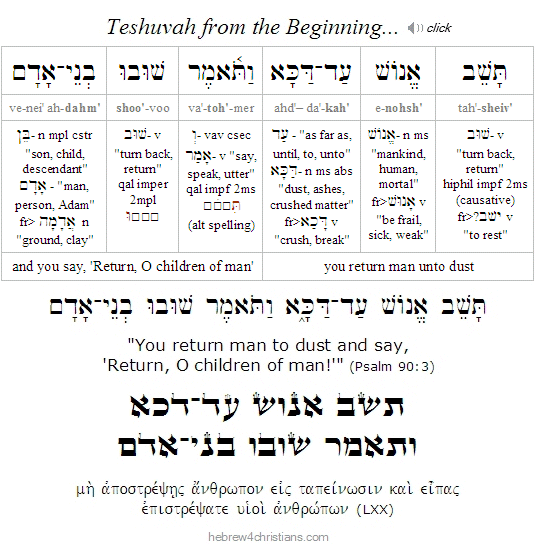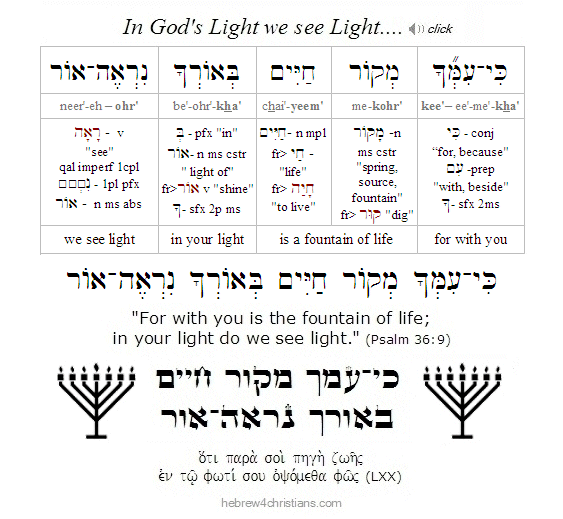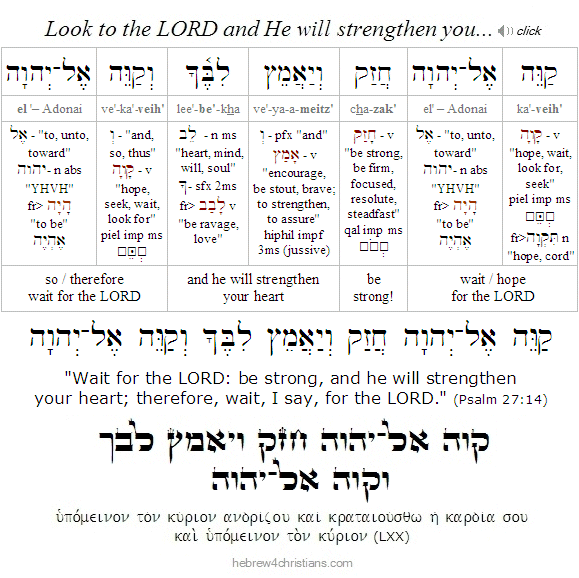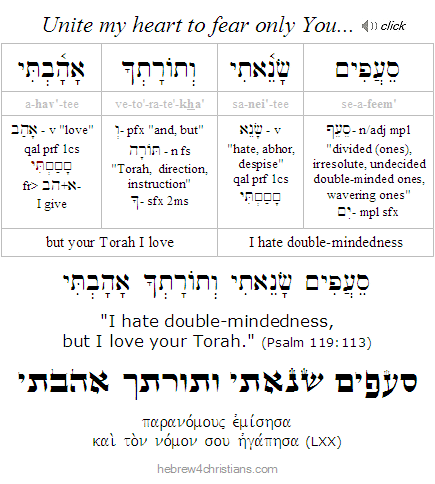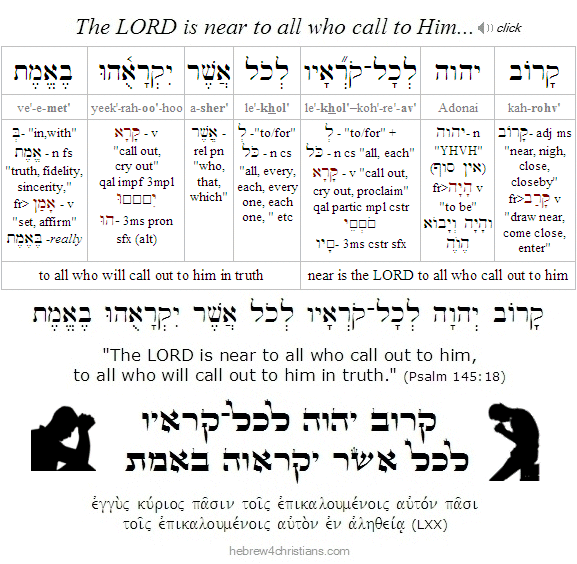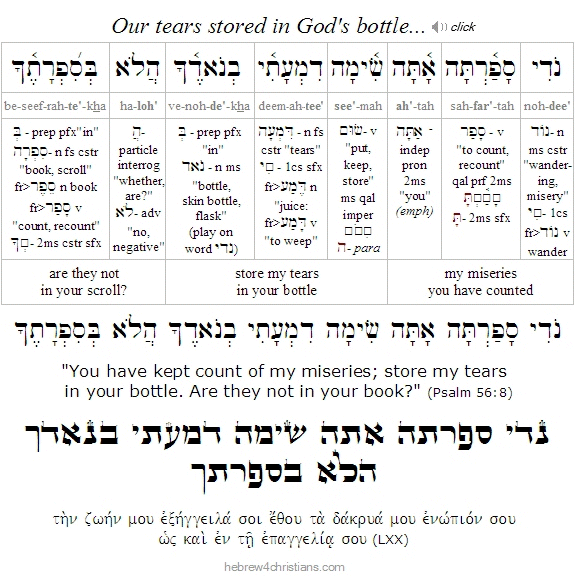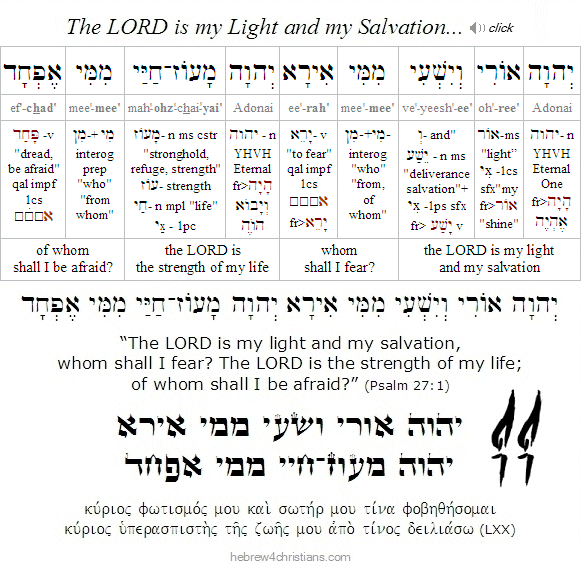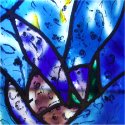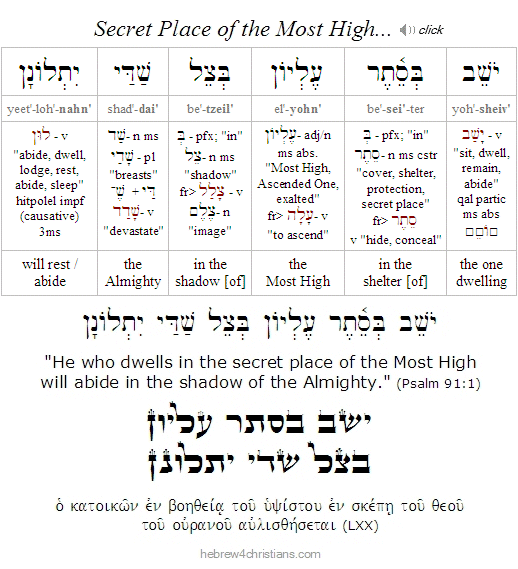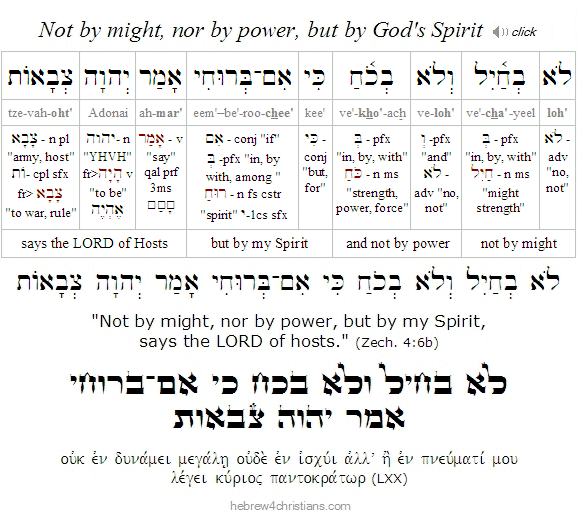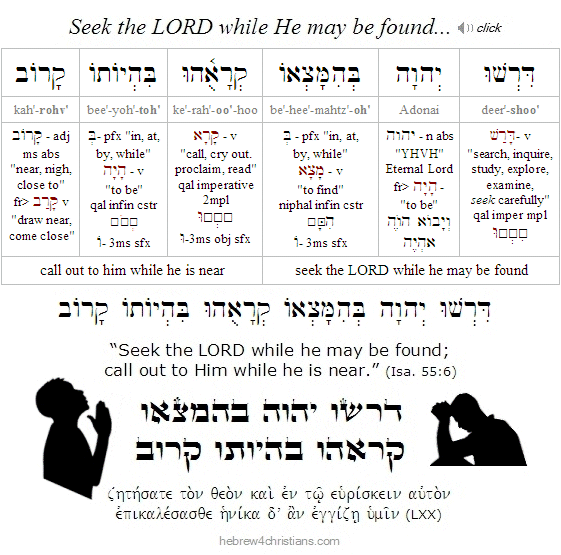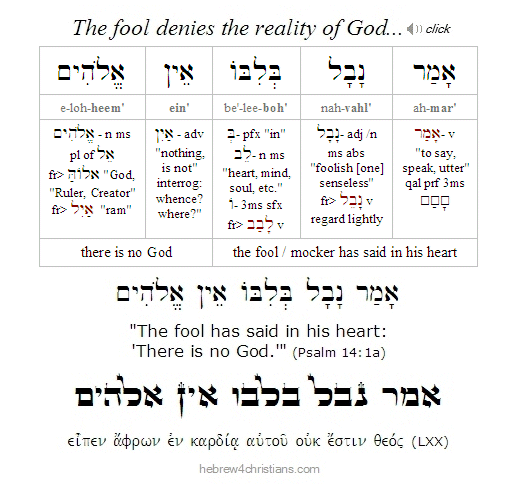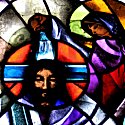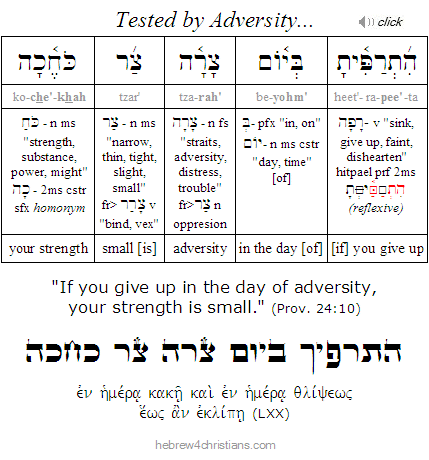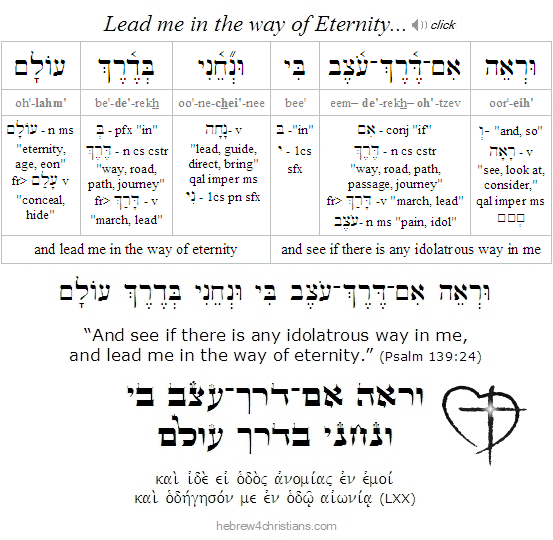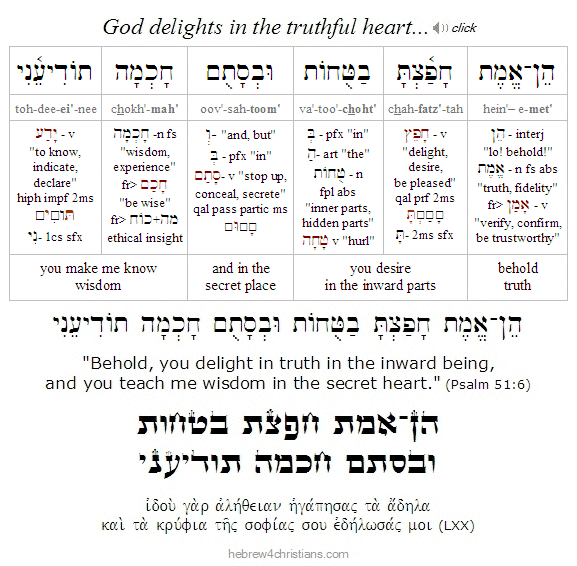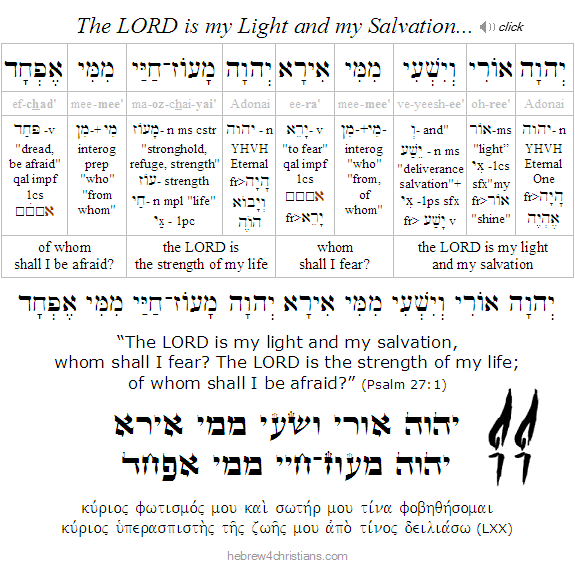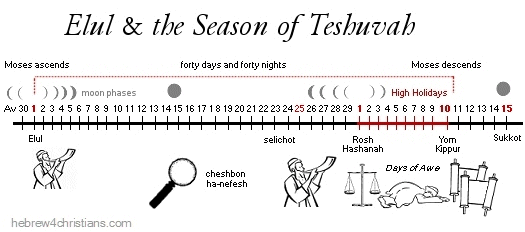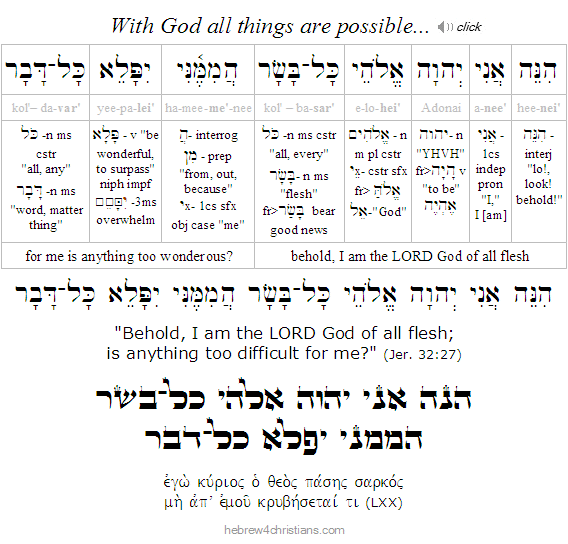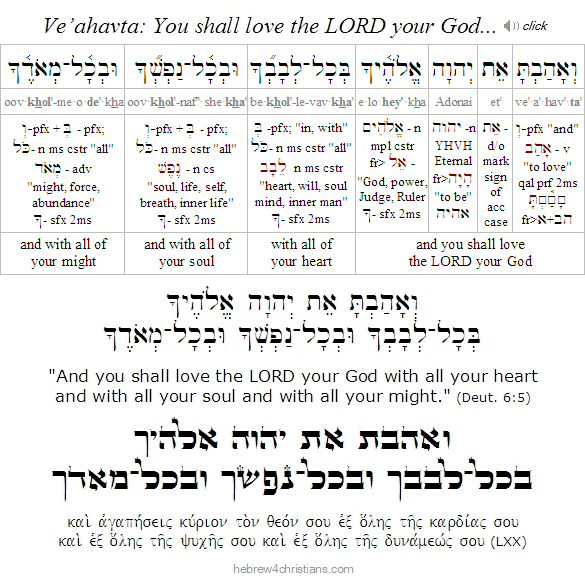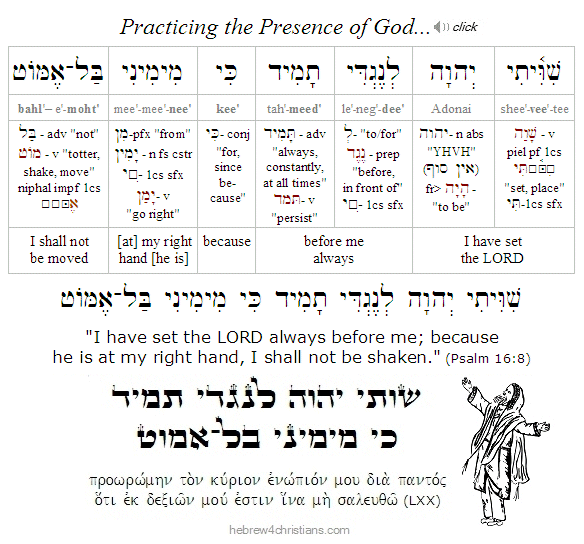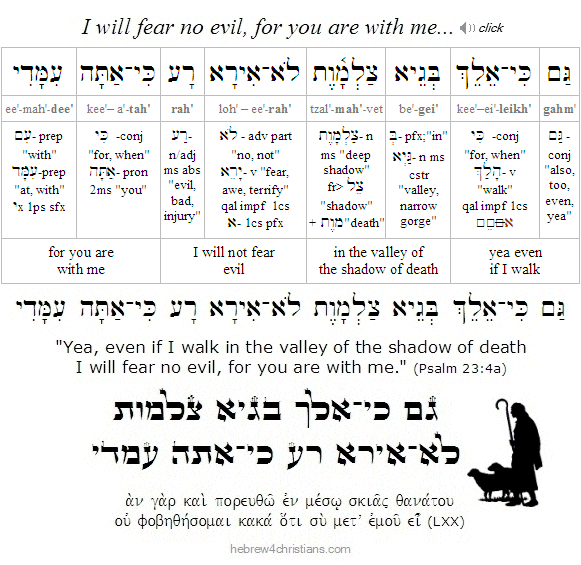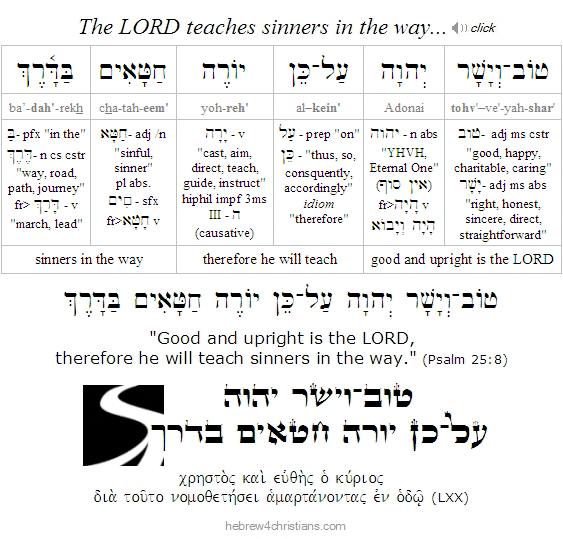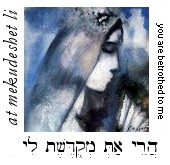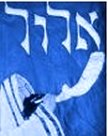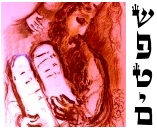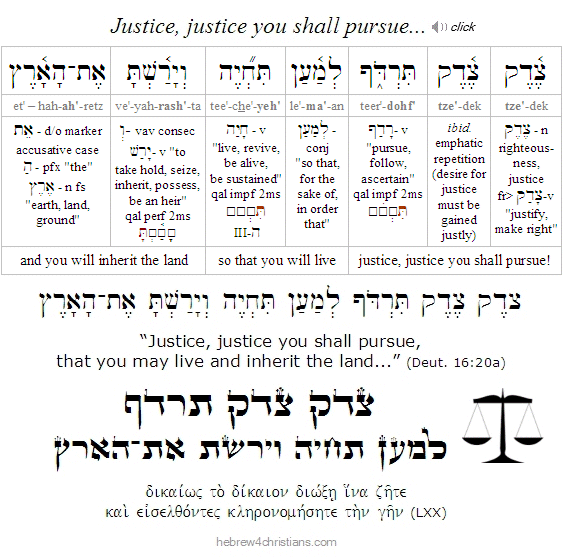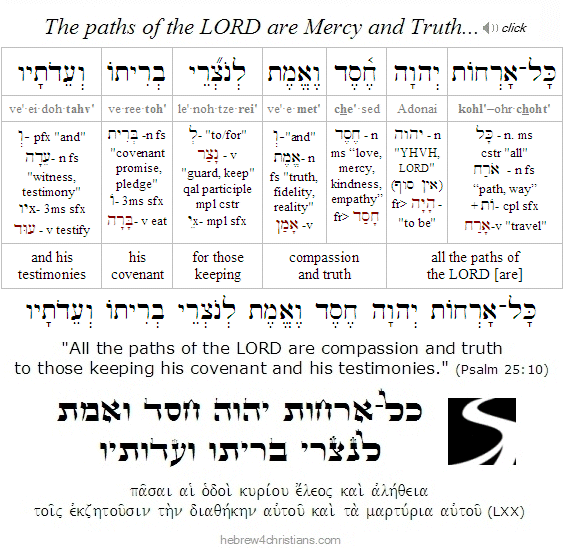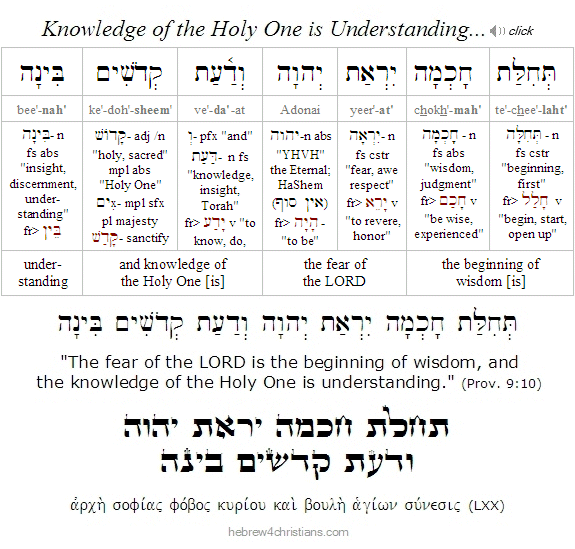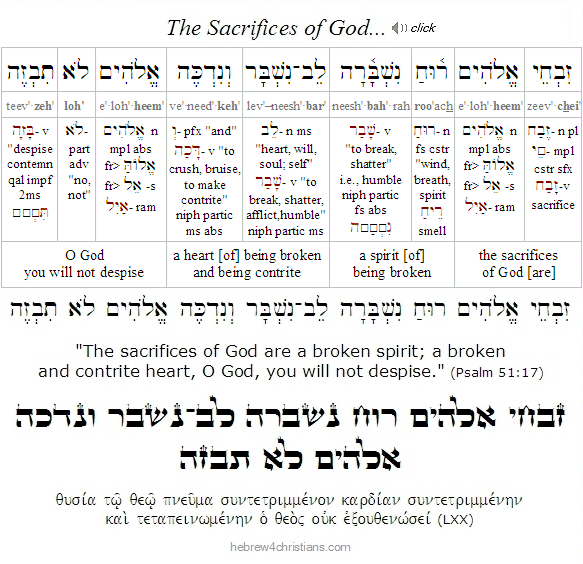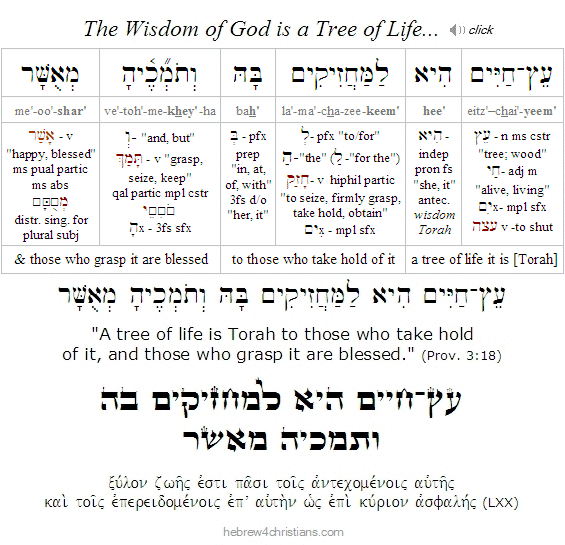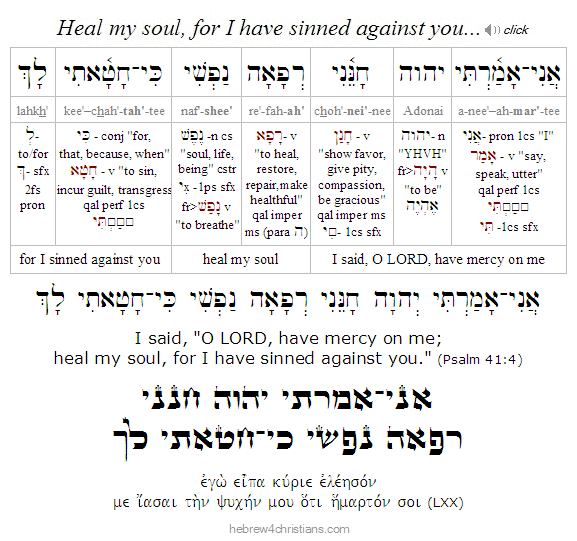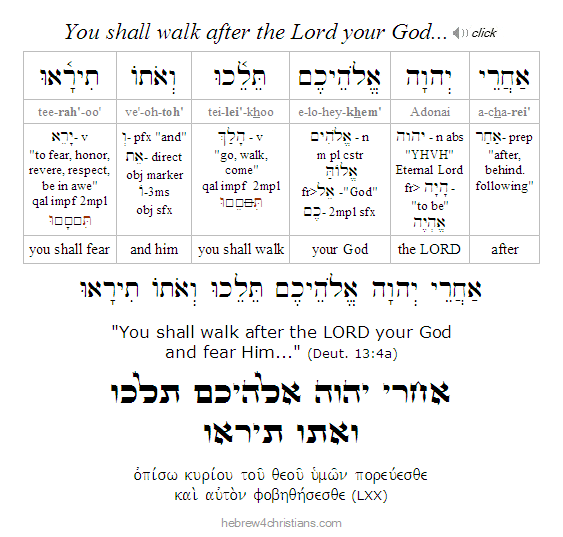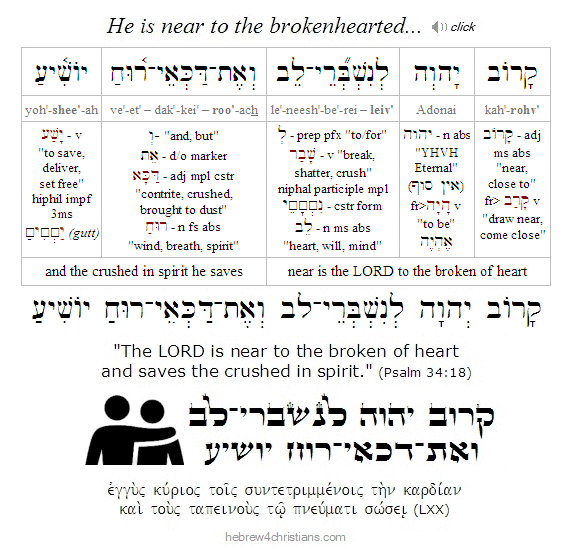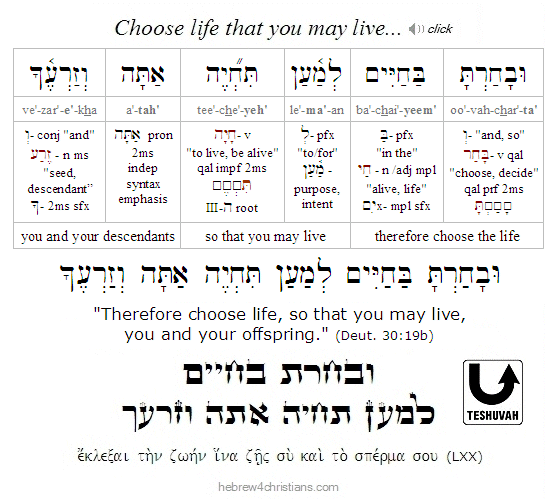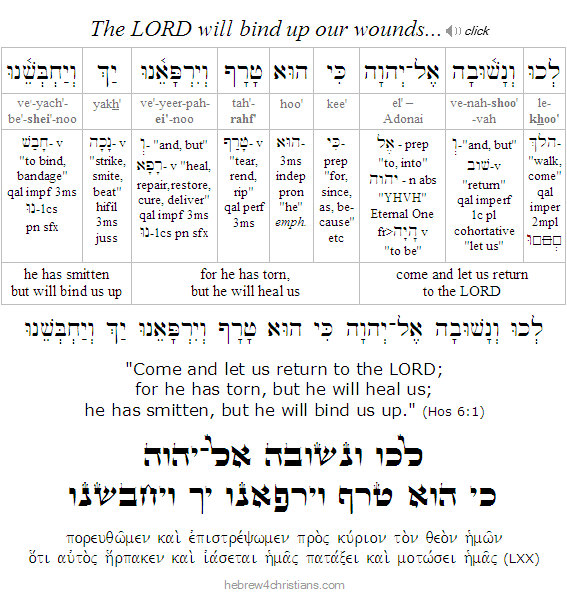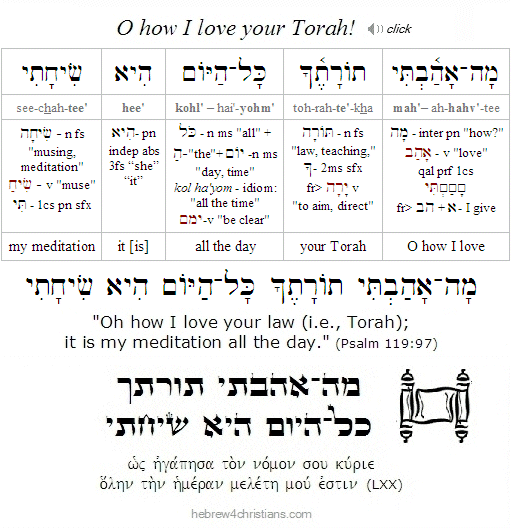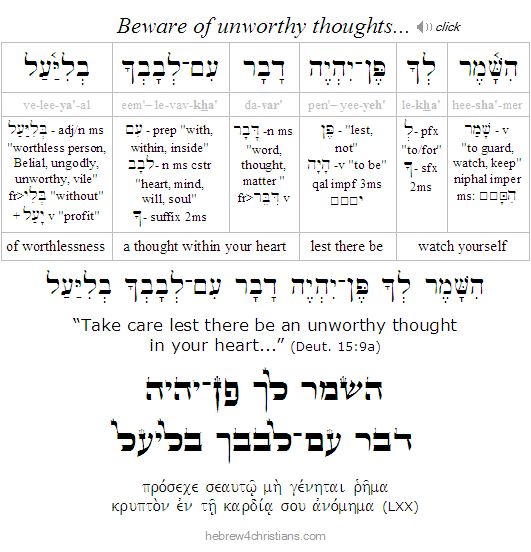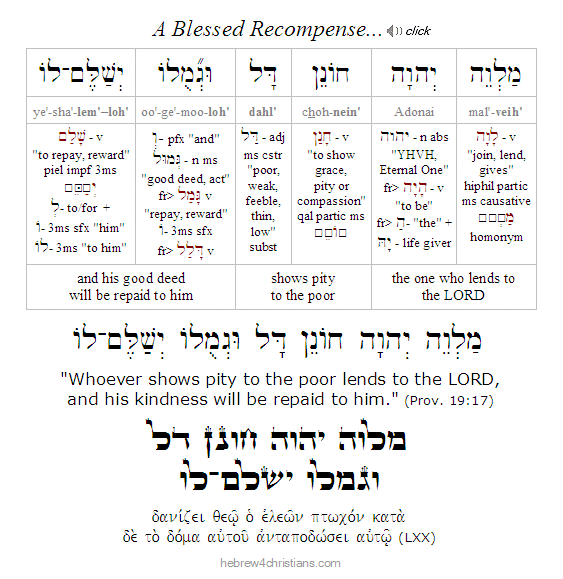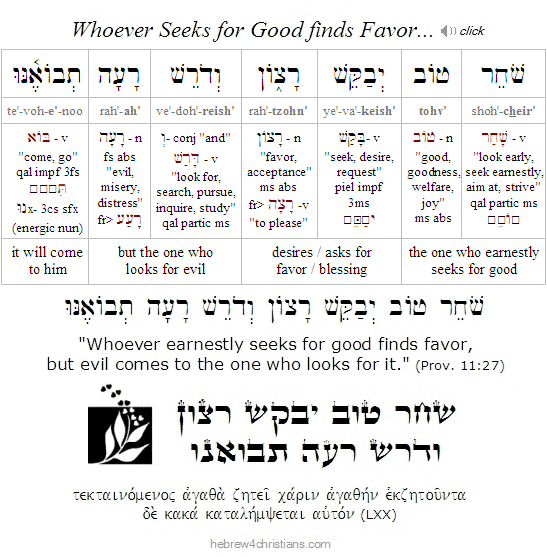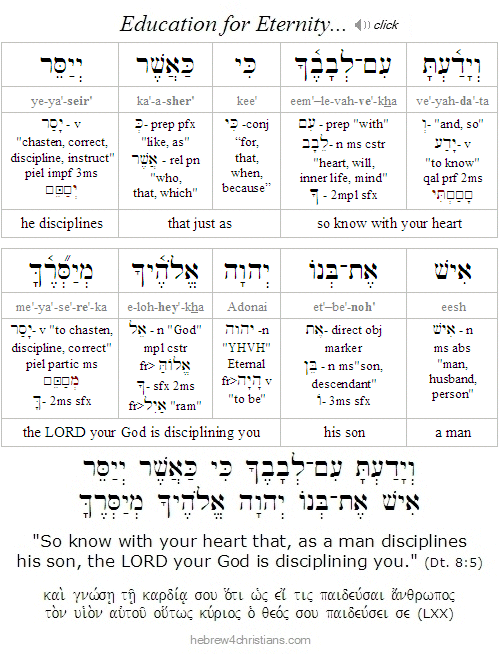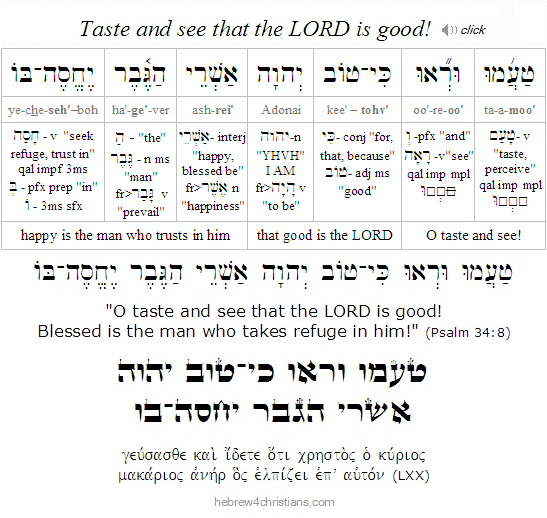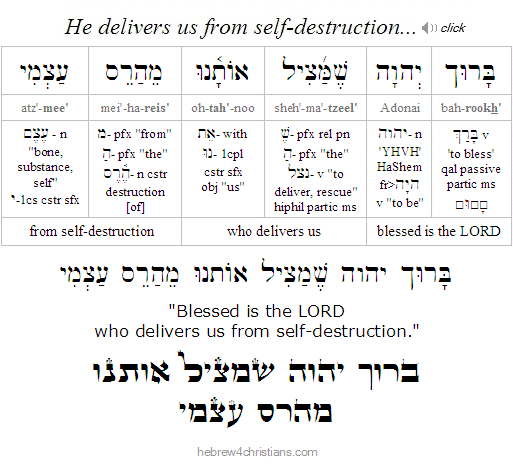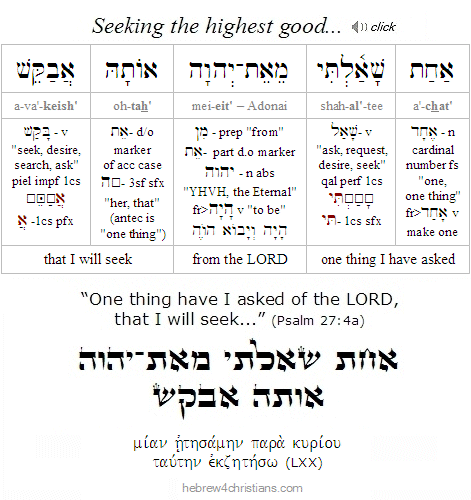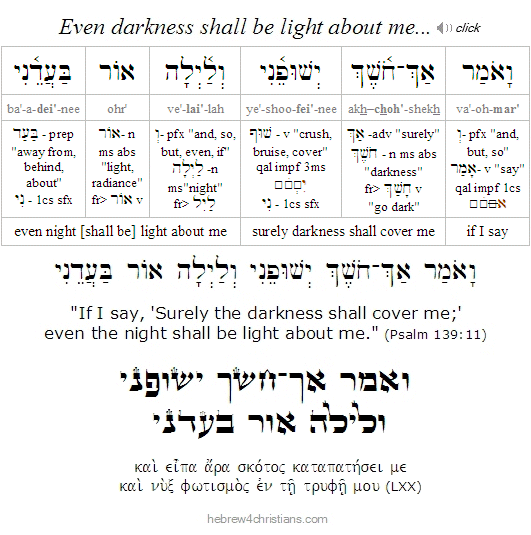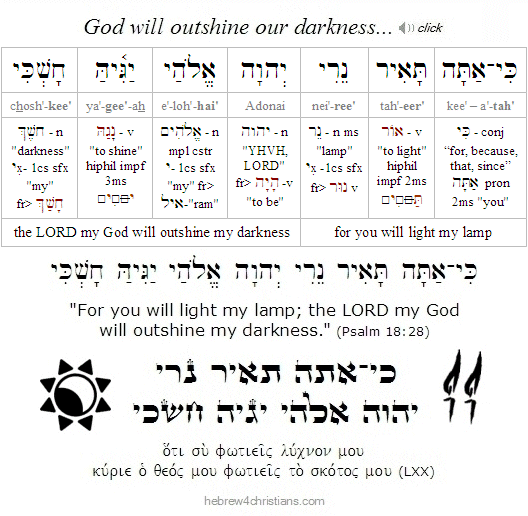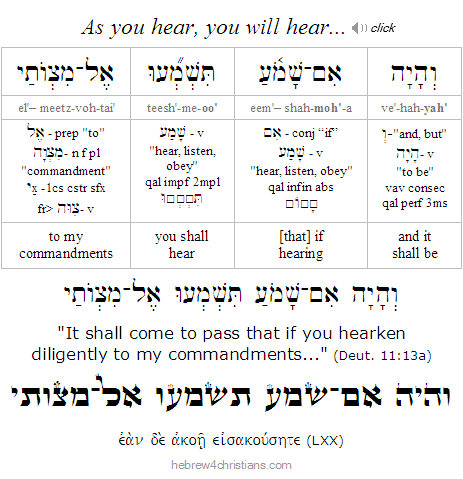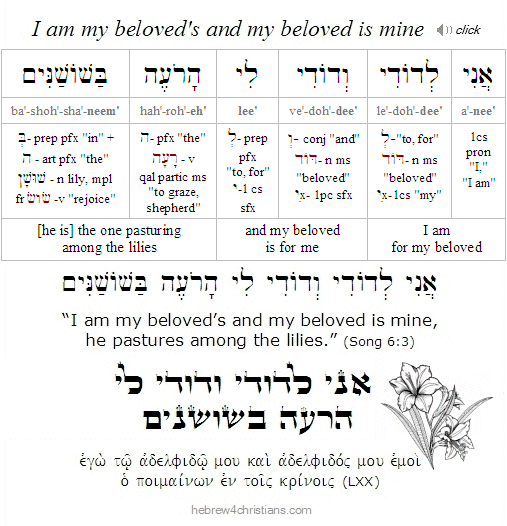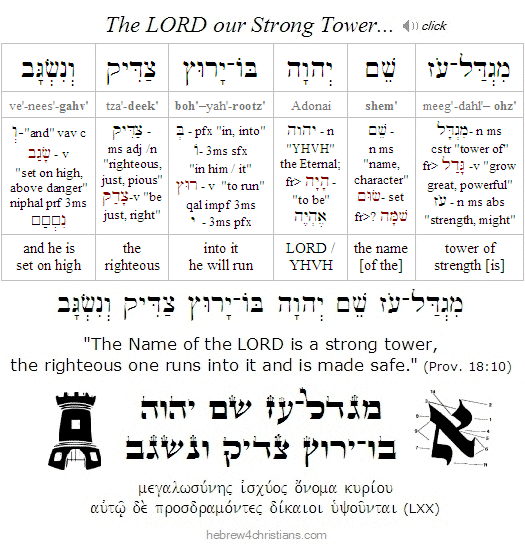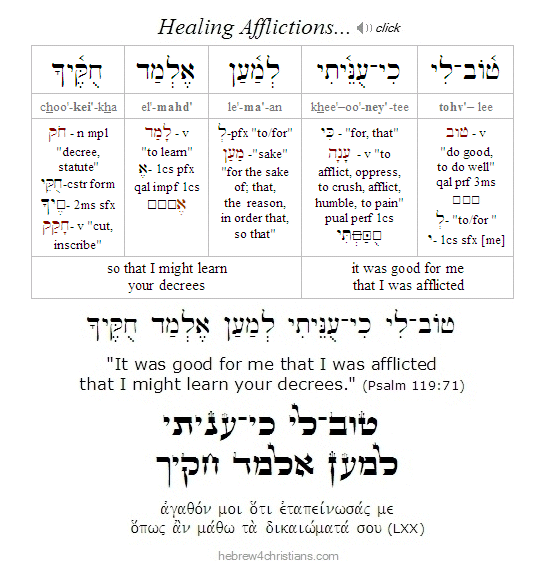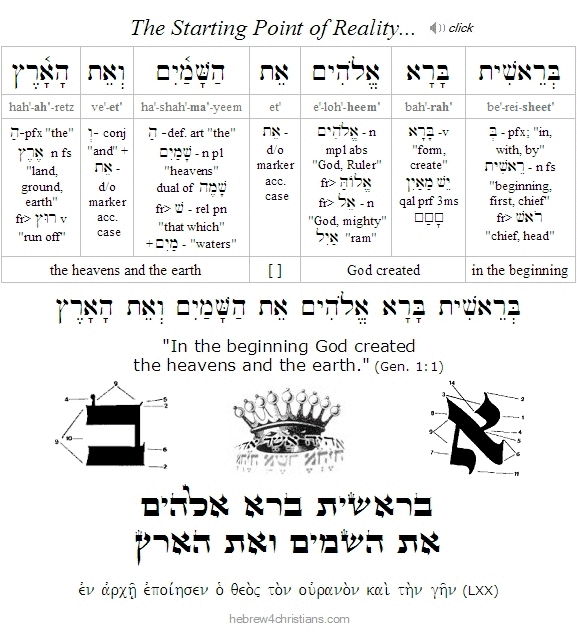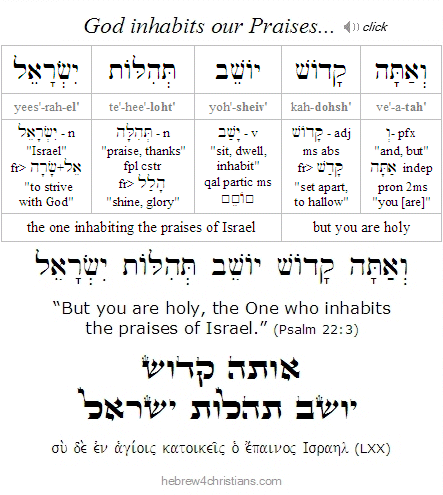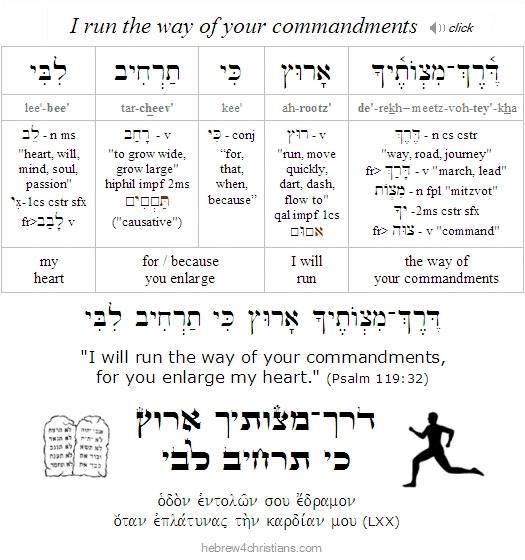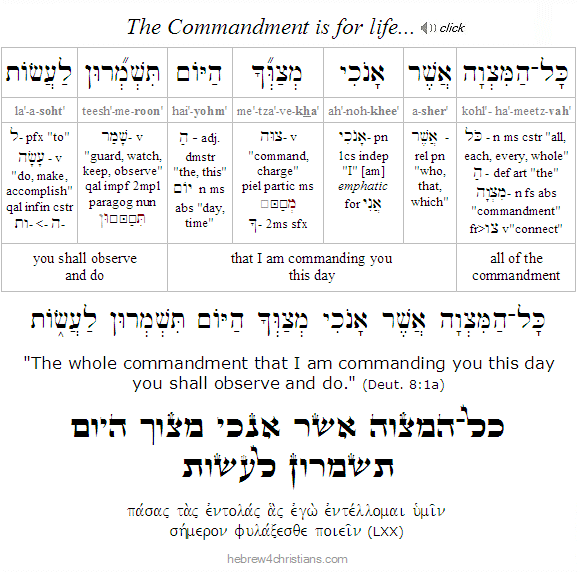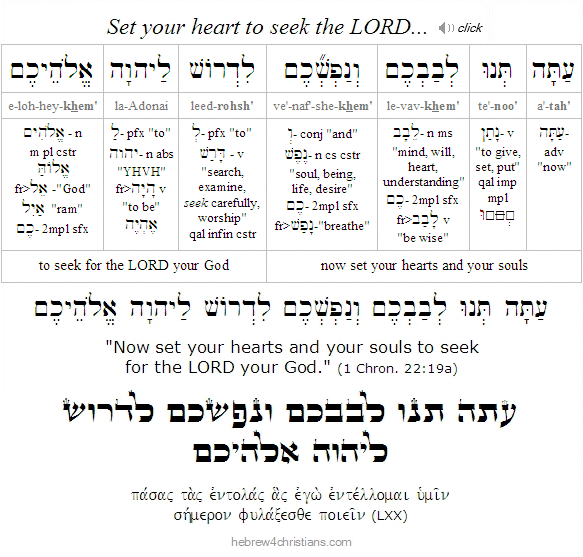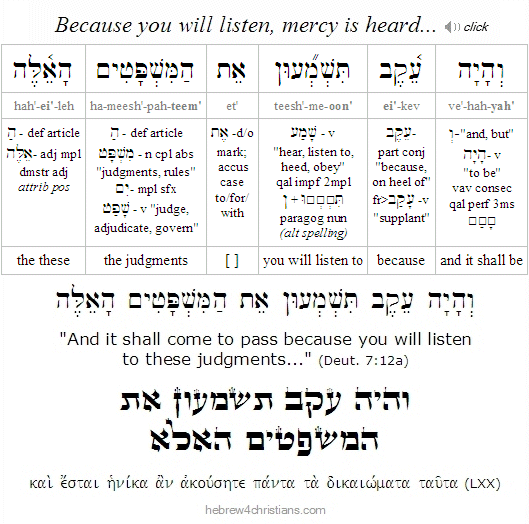|
|
|||||||||||||||||||||
 |
|||||||||||||||||||||
|
Learn Hebrew |
|||||||||||||||||||||
 |
|||||||||||||||||||||
|
Learn Torah |
|||||||||||||||||||||
|
Jewish Holiday Calendar For August 2020 site updates, please scroll past this entry....
The Summer Holidays:  Note that in accordance with tradition, holiday dates begin at sundown. Moreover, some holidays may be postponed one day if they happen to fall on the weekly Sabbath:
1. Month of Tammuz (Sun. June 21st [eve] - Tues. July 21st [day]) 2. Month of Av (Tues. July 21st [eve] - Wed. Aug. 19th [day]) 3. Month of Elul (Wed. Aug. 19th [eve] - Fri. Sept. 18th [day]) 4. Month of Tishri (Fri. Sept. 18th [eve] - Sat. Oct. 17th [day]) - Fall holidays begin! Note: For more about the dates of these holidays see the Calendar pages.... Note: If any page content appears to be missing, please refresh the page... 08.31.20 (Elul 11, 5780) From our Torah portion for this week (Ki Tavo) we read: "And all these blessings shall come upon you and overtake you, if you hear (shema) the Voice of the LORD your God" (Deut. 28:2). The language here is unusual, as if these blessings would seize you like an army takes an enemy stronghold. The sages comment that God's blessings can "overtake" you in a way that may hide their true purpose for your good (Rom. 8:28). At such times we do not understand they are a concealed mercy (רַחֲמִים נִסְתָר) designed for our benefit. Therefore king David affirmed his confidence despite being surrounded by trouble. Where it is written, "Surely goodness and mercy shall follow me all the days of my life" (Psalm 23:6), the verb translated "shall follow me" (i.e., יִרְדְּפוּנִי) comes from a root word that means "to pursue," as a hunter chases after his prey. David was sure that God's lovingkindness would "hound" him as he made his way through this world - even in the dark places, even in "the valley of the shadow of death" (בְּגֵיא צַלְמָוֶת) - where God's rod and staff would there comfort him and shepherd his way (Psalm 23:4). Therefore we we pray: "May your love, O LORD, be upon us, even as we hope for You." יְהִי־חַסְדְּךָ יְהוָה עָלֵינוּ ye·hee-chas·de·kha · Adonai · ah·ley'·noo "May your love, O LORD, be upon us,
Whatever the heart seeks, it will find. We are constantly "asking, seeking, and knocking" (Matt. 7:7), even if we are often unaware of our heart's search. The one who pursues righteousness will find it, just as evil will come to the one who searches after it (Prov. 11:27). As it is written, "Those who worship worthless idols forsake the love (i.e., chesed: חֶסֶד) that could be theirs" (Jonah 2:8). David understood that as he pursued God, God's love would pursue him; as we seek, so we are sought by God; as we draw near to God, so He will draw near to us (James 4:8).
The Knowledge of God... 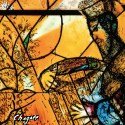 08.31.20 (Elul 11, 5780) The knowledge of God (ידיעת יהוה) is our supreme good and the "chief end of human life." It is our highest blessing, more precious than earthly riches, power, or any of the pleasures this world affords (Jer. 9:23-24; Prov. 3:15; Matt. 13:44-46). Those who do not esteem the true knowledge of God invariably fall into darkness, idolatry, and despair (1 Thess. 4:5; Eph. 4:17; Hos. 4:1-2). The knowledge of God set us free to receive the inestimable blessing of eternal life given in the Messiah, as Yeshua testified: "And this is eternal life, to know you (לדעת אותך) the only true God (האל האמיתי היחיד), and Yeshua the Messiah (ישוע המשיח) whom you have sent" (John 17:3). Knowing God is the very reason for your existence and nothing can be compared with its superlative excellence (Phil. 3:8). Oh, the depth of the riches and wisdom and knowledge of God! (Rom. 11:33).
We seek the knowledge of God by first of all believing in its possibility. This in itself is a miracle, since only God can make us come alive to "see" and "hear" the truth of the Spirit (John 3:8). We must humble ourselves, confess our need, and ask God for the grace to truly know him. We must be willing to study his word. This involves doing teshuvah - turning to God and trusting that he desires a genuine relationship with Him (Deut. 10:12). We first know know God in our need for deliverance, our poverty of spirit, and our inner desperation for life, for without these primary and existential concerns, we will not be actually receptive to the divine presence. As we begin to trust in God, however, holy desire is awakened within us to know Him more deeply. We begin to "enshrine" his Presence within the sanctuary of our hearts, making a "place" for him, affirming his reality as what is most precious and glorious (Exod. 15:2). We discover the "one thing" that King David desired - to dwell in God's Presence all his days, beholding the beauty of the LORD and inquiring in his palace (Psalm 27:4).
The Shepherd's Call... 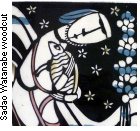 08.31.20 (Elul 11, 5780) A message of teshuvah from our Lord: "What do you think? If a man has a hundred sheep, and one of them has gone astray, does he not leave the ninety-nine on the mountains and go in search of the one that went astray? And if he finds it, truly, I say to you, he rejoices over it more than over the ninety-nine that never went astray" (Matt. 18:12-13). Though it involves sorrow, and the pain of being lost, repentance is ultimately about finding joy, and when we return to God, we have reason to rejoice. The Good Shepherd says, "Rejoice with me, for I have found my sheep that was lost. Just so, I tell you, there will be more joy in heaven over one sinner who repents than over ninety-nine righteous persons who need no repentance" (Luke 15:6-7). The Son of Man came to seek and to save the lost: "For thus says the Lord GOD: Behold, I myself will search for my sheep and I will seek them out... I myself will be the Shepherd of my sheep, and I myself will make them lie down, declares the Lord GOD. I will seek the lost, and I will bring back the banished, and I will bind up the injured, and I will strengthen the sick..." (Ezek. 34:11,15-16).
Courage and Change....  08.31.20 (Elul 11, 5780) As human beings, we experience everything in terms of spatio-temporal relationships. We can't help it. Whatever you experience is "framed" within boundaries of space and time. Language itself is embedded into this framework, since it is rhythmic (time-based) and intentional (space-based); that is, it attempts to correlate a sequence of human sounds with events in the world (the grandiose attempt to "transcend" these limitations has been the dream of metaphysical philosophers for ages, but the task is ultimately self-stultifying and idolatrous). "Perhaps ... experience merely defines, so to speak, the shape of that gap where our love of God ought to be. It is not enough. It is something. If we cannot "practice the presence of God", it is something to practice the absence of God, to become increasingly aware of our unawareness till we feel like men who should stand beside a great cataract and hear no noise, or like a man in a story who looks in a mirror and finds no face there; or a man in a dream who stretches out his hand to visible objects and gets no sensation of touch. To know that one is dreaming is to be no longer perfectly asleep." (C.S. Lewis: Four Loves) If we are suddenly shocked from our "everydayness" we invariably will ask the question about the meaning or purpose of life. Is everything random, purposeless, pointless, and ultimately vacuous, or is there some goal or point to all the motion of the universe? How can I find a sense of belonging, a sense of place, that will be unshakable and abiding? "Am I afraid to die? I am every time I let myself be seduced by the noisy voices of my world telling me that my 'little life' is all I have and advising me to cling to it with all my might. But when I let these voices move to the background of my life and listen to that small soft voice voice calling me Beloved, I know that there nothing to fear, and that dying ... leads me into the eternal embrace of my God whose love is everlasting." (Henri Nouwen: Life of the Beloved). "Fear thou not, for I am with thee." Surely the LORD God of Israel is the same yesterday, today, and forever (Heb 13:8). Despite your present state of exile, God will neither leave you nor forsake you (Heb. 13:5, John 14:18). Trust now that He will strengthen and help you with "the right hand of His righteousness."
Shabbat Kumi Ori - קוּמִי אוֹרִי 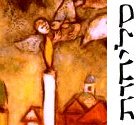 [ The following entry concerns this week's Torah reading, parashat Ki Tavo... ] "Arise and shine (קוּמִי אוֹרִי) for your light has come, and the glory of the LORD (כְּבוֹד יהוה) has risen upon you. For behold, darkness shall cover the earth, and thick darkness the peoples; but the LORD will shine upon you (וְעָלַיִךְ יִזְרַח יהוה), and his glory will be seen upon you (וּכְבוֹדוֹ עָלַיִךְ יֵרָאֶה). And nations shall come to your light, and kings to the brightness of your rising. Lift up your eyes all around, and see; they all gather together, they come to you; your sons shall come from afar, and your daughters shall be carried on the hip" (Isa. 60:1-4). Sometime during the "plague of darkness" that represents the time of the Great Tribulation (i.e., the Day of the LORD and the judgment of the world, or Yom Adonai), Israel will finally turn to the LORD and receive Yeshua as their long-lost Messiah (Zech. 12:10). The veil will finally be taken away, and all Israel will be saved (Rom. 11:26; Isa. 59:20). The Light of Salvation (אור הישועה) will be revealed and the glory of the LORD (כְּבוֹד יהוה) will radiantly shine (זָרָח) upon the Jewish people. The land of Israel will be like Goshen during the times of the plagues of Egypt as the world powers are all judged and destroyed. Then the survivors of the nations will understand that the LORD is indeed with Israel and will turn to Him in surrender as well. "And the glory of the LORD shall be revealed, and all flesh shall see it together, for the mouth of the LORD has spoken" (Isa. 40:5). Yeshua will return to Zion to establish the Kingdom of God upon the earth (Zech. 2:10-13). קוּמִי אוֹרִי כִּי בָא אוֹרֵךְ koo'·mee oh'·ree kee va oh·reikh "Arise, shine, for your light has come,
The LORD said to Moses from the midst of the shining flame: 'Take off your sandals from your feet, for the place on which you stand is holy' (Exod. 3:5). The Chofetz Chaim comments: We all need to rise higher... Never say, I will be able to lift myself up at another time or different place. By faith see that this place, right now, is holy ground, and awaits your response. May God open the "eyes of your heart" to help you see (Eph. 1:18-19).
Shavuah Tov Podcast: Parashat Ki Tavo.. 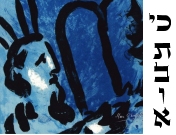 08.30.20 (Elul 10, 5780) In this week's "Shavuah Tov" audio podcast (see links below) I discuss the the 40 day "Season of Teshuvah" leading up to the Jewish High Holidays as well as themes from weekly Torah portion, parashat Ki Tavo, which includes instructions for the people to ratify the Sinai covenant in the promised land by means of a special covenant renewal ceremony performed in the valley between Mount Ebal and Mount Gerazim. During this ceremony blessings for obedience and curses for disobedience would be declared, and Moses warned the people by providing a seemingly endless description of terrible consequences that would befall the Jewish people if they disobeyed the terms of the Sinai covenant (Deut. 28:15-68). I hope you will find it encouraging.
Parashat Ki Tavo - כי־תבוא 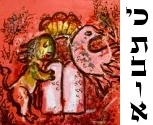 08.30.20 (Elul 10, 5780) Shavuah tov, chaverim! Our Torah portion this week (Ki Tavo) includes instructions for the people to ratify the Sinai covenant in the promised land by means of a special ceremony performed in the valley between Mount Ebal and Mount Gerazim (later fulfilled by Israel, see Josh. 8:30-35). During this ceremony the blessings for obedience and the curses for disobedience would be declared, and Moses warned the people by providing a seemingly endless description of terrible consequences that would befall the Jewish people if they disobeyed the terms of the Sinai covenant (Deut. 28:15-68). In Jewish tradition this litany of woe is called the "tochachah" (תּוֹכָחָה), a word that means "rebuke" or "reprimand."
08.28.20 (Elul 8, 5780) How we deal with trouble and suffering (i.e., tzuris) makes all the difference. We may be tempted to bitterness over our lives, but then what? To paraphrase Soren Kierkegaard, the way of life is how more than it is what. You may be powerless to control reality, but you are nevertheless responsible for how you respond to it. Check your attitude. Do you chose to live in lament over a healing that has not yet happened, or perhaps regard yourself as a hapless victim? Or will you attempt to justify your suffering as a means of personal atonement, accepting it passively as a "good child" or martyr? Does your suffering stretch your heart, or does it cause you to shrink back in fear or self-pity?
He will never leave you...  08.28.20 (Elul 8, 5780) The Scriptures declare that though the "outward self" (ὁ ἔξω ἡμῶν ἄνθρωπος) inevitably wastes away (διαφθείρω), the "inner self" (ὁ ἔσω ἡμῶν) is being renewed (ἀνακαινόω, i.e., "raised up in newness of life") day by day (2 Cor. 4:16), which implies that we have nothing to fear regarding our perpetuity and acceptance as God's beloved children. Therefore we do not "lose heart" (lit., act badly, from ἐκ, "out" + κακός, "badly"). Despite the shadows of this world, we take hold of the words of our Savior, who said: "I give you eternal life, and you will never be destroyed (ἀπόλλυμι), and no one will snatch you out of my hand" (John 10:28). And in another place he likewise said, "Everyone who lives and believes in me shall never die (οὐ μὴ ἀποθάνη)" (John 11:26).
God has redeemed you, friend, and has called you by name; he knows you intimately, and you belong to Him. God does not call groups, but rather individuals. The Spirit calls out, "follow me..." The Lord never leaves nor forsakes those who trust in Him, even if they should face waters that seem to overwhelm or fires that seem to devour and consume. Shabbat Shalom.
The Call of Elul... 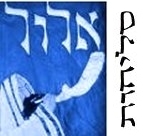 08.28.20 (Elul 8, 5780) The midrash notes that the word Elul (אֶלוּל), when read backward, spells lulei (לוּלֵא), meaning "if not" or "were it not for...", which suggests that the last month of the Jewish year serves as a season to examine ourselves, to confess our sins, and to be renewed... Today is the day - your opportunity - to turn to God for life and blessing.
The Law of Faith... 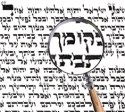 [ The following entry concerns this week's Torah reading, parashat Ki Teitzei, which contains more commandments than any other Torah portion... ]
Shavuah Tov Podcast: Why then the Law?  08.28.20 (Elul 8, 5780) Our Torah reading for this week (i.e., Ki Teitzei) identifies 74 of the Torah's 613 commandments (more than any other), which again raises the question of whether we are obligated to follow the lawcode of Moses or not... In this Shavuah Tov broadcast, I explore how we are to understand the law in light of the salvation given in Yeshua the Messiah. I hope you will find it both provocative and helpful.
Seeking God's Presence...  [ The following is related to the month of Elul and the theme of teshuvah (repentance)... ] דרשׁו יהוה ועזו deer·shoo · Adonai · ve·ooz·zo "Seek the LORD and his strength;
"It is not the path which is the difficulty; rather, it is the difficulty which is the path." The ancient Greek version of the Torah (i.e., the Septuagint) translates this verse, "Seek the LORD and be strengthened; seek His face through everything (διὰ παντός)." The LORD God gives us "inner strength" (i.e., ἐγκράτεια, from εν-, "in" + κράτος, "strength" or "power") when we yield to "the power of His might" (ἐν τῷ κράτει τῆς ἰσχύος αὐτοῦ) (Gal. 5:22-23; Eph. 6:10). Therefore we must remember God's power and glory, for "He is the LORD our God (הוּא יְהוָה אֱלהֵינוּ); His judgments are in all the earth" (Psalm 105:7).
Confession and Reality...  08.27.20 (Elul 7, 5780) Sin is not the result of not knowing what is right, but rather of being unwilling to understand such, and therefore is the refusal to do what is right. It is not the result of ignorance but rebellion. Sin doesn't say "I can't" but rather "I won't," and therefore it is a matter of the will, the heart, the secret desires of the soul... Just as grace is inaccessible for someone who refuses to be honest with himself, so is forgiveness. If a person refuses to confess the truth about his condition, salvation itself is impossible, since God literally cannot save the soul that denies its need for Him. Therefore the Scripture does not vainly declare: "Whoever conceals his transgressions will not prosper, but the one who confesses and forsakes them will find mercy" (Prov. 28:13). מְכַסֶּה פְשָׁעָיו לא יַצְלִיחַ me·kha·seh · fe·sha·av · lo · yatz·lee'·ach "One who conceals his transgressions will not prosper, Click to listen and learn the Hebrew text: A person who "conceals" or "covers" his sin denies it, either by outright disavowal or by explaining it away by offering self-deceptive excuses. This person simply cannot prosper – in the spiritual sense of the word – because he is not living in reality... Indeed, his conscience is burdened with a "secret ban," an inner voice of condemnation that must be suppressed and squelched. It is only the person who comes to the light, who acknowledges the truth of his sin and who is anxious to be free of its effects, who will be shown mercy (i.e., rachamim (רַחֲמִים), which comes from the word rechem (רֶחֶם), "womb").
Counsels of my Soul...  08.27.20 (Elul 7, 5780) People tend to believe what they want to believe until they are faced with reality, and therefore God orchestrates tests and challenges to awaken people from their illusions to make them confront their need for deliverance. Such afflictions are called yissurim shel ahavah, "troubles of love." For example, regarding their affliction in Egypt, the Torah states that the people groaned because of their slavery and then cried out to heaven for help: "And God heard their groaning; he remembered his covenant ... and God saw the people of Israel, and God knew" (Exod. 2:24-25). Note the pattern: The people cried out for help; God heard (וַיִּשְׁמַע); he remembered (וַיִּזְכּר), he saw (וַיַּרְא); and he knew (וַיֵּדַע)... God knows our profound need for Him. Affliction teaches us that wishful thinking is unable to sustain the weight of reality, and only God Himself can truly save us...
Where it says, "How long shall I take counsel in my soul, having sorrow in my heart daily" (Psalm 13:2), the sages remark that just as long as we take counsel in our own soul there will be despair, since only after we realize that no further counsel can help do we give up and confess our need for God's salvation. Therefore just as Abraham saw the divine light by closing his eyes to this world, so we must trust in the LORD with all our heart by refusing to lean on our own understanding (Prov. 3:5).
God There and Here... 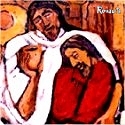 08.27.20 (Elul 7, 5780) "If I ascend to heaven, you are there; if I descend to the depths, behold, you are there too" (Psalm 139:8). The sages note the use of the adverbs "there" and "here" in this verse, saying that when a person feels like he has ascended to great heights, the LORD will be "there" (שָׁם), that is, distant from him, but when he is humble and low, the LORD will be "here" (הִנֵּה), that is, right at his side (Isa. 57:15). This is the "upside-down" way of beholding the Kingdom of Heaven. Can a camel go through the eye of a needle? No more than a 'rich man' can find life through his own ventures (Matt. 19:23-24). The only way to enter life is to disown your riches (i.e., your self-sufficiency) by becoming "impoverished in spirit." This is the narrow way that leads to life (Matt. 7:14). You have to let go of the "baggage" of your worldly ego... Yeshua teaches that only by emptying ourselves can we be made full; only by mourning ourselves can we find comfort, and only by hungering and thirsting for God's righteousness can we find inner satisfaction... אִם־אֶסַּק שָׁמַיִם שָׁם אָתָּה eem-es·sak · shah·ma'·yeem · sham · ah'·tah "If I ascend to heaven, You are there; Click to listen and learn the Hebrew text:
Truth Matters...  08.26.20 (Elul 6, 5780) Truth matters. I don't mean "opinion" here, but real, objective, hard-core truth. Truth reveals reality. Aristotle defined it this way: "To say of what is that it is not, or of what is not that it is, is false, while to say of what is that it is, and of what is not that it is not, is true" (Metaphysics). Genuine knowledge (γνῶσις), as opposed to illusion, depends on truth, since knowledge constitutes true belief, whereas illusion (and opinion) does not. The Greek word for truth is aletheia (ἀλήθεια, from α[not] + λήθω [to hide]) which implies being awakened to the revelation of being. The Hebrew word for truth is emet (אֱמֶת), which is related to the idea of fidelity or correspondence with reality (אָמַן).
Truth (אֱמֶת) apart from God who is Alef (א) leads to death (מֵת). Sincerity of conviction is no test of truth since you can be sincere and sincerely wrong. How many have perished in this world because they believed they were on the right course when in fact they were not? Yeshua made bold the claim that there was no way to know the heart of God apart from him... there is salvation is no other. Either he spoke the truth or he did not; either he can be trusted for the direction (תּוֹרָה) of your life or he cannot; either he expresses the Salvation of God or he does not. The issue of truth demands that we must choose whom we will serve...
Fighting Spiritual Blindness...  [ The following entry concerns this week's Torah reading, parashat Ki Teitzei.... ]
The Everlasting Way...  08.26.20 (Elul 6, 5780) The sages say that teshuvah (return) was created before the world itself, as it says, "Before the mountains were born, or you brought the world into being, you were the Eternal God who says: "Return (שׁוּבוּ), O children of man" (Psalm 90:2-3). There is a deeper blessing that preceded our exile... The Lamb of God was slain from the foundation of the world, and God clothed humanity in divine sacrifice from the very beginning (Gen. 3:15,21; Rev. 13:8). The water of life (מַיִם חַיִּים) flows from the original orchard of Eden to the world to come (Gen. 2:10; Rev. 22:1). The LORD subjected creation to vanity for the sake of hope (Rom. 8:20), for the revelation of his greatness, as he descended into its depths to return and restore all things to himself. God decreed to enter space-time as the Son of Man, the "Second Adam," to become our Savior and healer. He came to reveal the face of God to us (2 Cor. 4:6). Yeshua "descended in order to ascend" so that would could know God's compassion, love and healing through his mesirat nefesh – his total sacrifice of body and soul – to return us to God.
The Overmastering Light...  08.25.20 (Elul 5, 5780) The goal of the devil, the "prince of the power of the air," has always been to enslave people in dark places of fear, anger, bitterness, and pain. His primary weapon is deception, that is, various lies by which he captivates people and makes them tools for his evil purposes. We are able to resist the power of the lie by submitting to the truth about Reality (James 4:7). God's Name YHVH (יהוה) means "Presence" and "Love," and there is no power in heaven or earth that can overrule His hand. Therefore even if the prophesied "End of Days" were to begin this very hour, our responsibility is to focus on the Divine Presence and to walk in His truth and love. As King David said, "I have set the LORD always before me; because He is at my right hand, I shall not be shaken" (Psalm 16:8). שִׁוִּיתִי יְהוָה לְנֶגְדִּי תָמִיד shee·vee'·tee · Adonai · le·neg·dee · ta·meed "I have set the LORD always before me;
Encourage yourself by remembering that there is a future of healing and deliverance coming to us, though we must abide in the shadow of its substance for a bit longer: "For behold, the Day is coming (הַיּוֹם בָּא), burning like an oven, when all the arrogant and all evildoers will be stubble. The Day that is coming shall set them ablaze, says the LORD of hosts, so that it will leave them neither root nor branch. But for you who fear my Name, the Sun of Righteousness (שֶׁמֶשׁ צְדָקָה) shall rise with healing in its wings. You shall go out skipping like calves released from the stall. And you shall tread down the wicked, for they will be ashes under the soles of your feet, on the day when I act, says the LORD of hosts" (Mal. 4:1-3). Despite the present hour, it is not all darkness... seek the Light and you will find it (Isa. 50:10).
Reverence and Freedom... 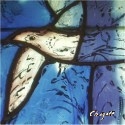 08.25.20 (Elul 5, 5780) Reading the news of the world is a demonstration of Romans 1:28: "Since they did not see fit to acknowledge God, God gave them up to a debased mind to do what ought not to be done." This is the word that describes our godless and brazen generation: "Because they hated knowledge and did not choose the fear of the LORD (יראת יהוה), they refused my counsel and despised my reproof, therefore they shall eat the fruit of their way, and have their fill of their own devices" (Prov. 1:29-1:31). God is patient and loving, of course, though there comes a time when his patience runs out, when -- after repeated warning and appeals -- a culture tragically hardens its heart further and further until God withdraws and people are left to their own vain imaginations and darkened impulses.
Ordering our Affections..  08.24.20 (Elul 4, 5780) Ambivalence has been defined as wanting two different and opposing things at the same time, and therefore is a state of inner conflict... For example, you may want to be kind and loving toward someone who has hurt you, but you may also harbor resentment or even want revenge; or you may want to abstain from a forbidden pleasure, yet you find yourself inwardly hungering for it anyway. When we feel pulled in two different directions or have mixed feelings, we are being called near to God to find help. סֵעֲפִים שָׂנֵאתִי וְתוֹרָתְךָ אָהָבְתִּי se·a·feem · sa·nei'·tee · ve·to·ra·te·kha · a·hav'·tee "I hate double-mindedness, but I love your Torah."
Note that the word se'afeem (סֵעֲפִים) is translated as παρανόμους (paranomous) in the LXX, literally, "one who reasons around the Torah," that is, a lawless person quick to excuse himself from the demands and truth of God's moral will and authority... Some translations render this word as "frivolous-minded," "light-minded," or "vain," though the Hebrew word comes from a root (סעף) that means to split or to divide, fork-like, like branches of trees waved with the wind to and fro (compare James 1:8-9; 4:8; 1 Kings 18:21).
Pouring out of Heart... 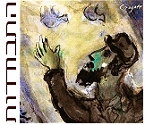 [ God allows us to suffer because....... will any words here suffice? Suffering, like nearly everything else in the universe, is a mystery. Yes, we believe God will wipe away all our tears, but there are tears, after all, and things really hurt sometimes. ] We are to pray to God with all our heart (מכל הלב), but that must include the broken heart, too - that is, the broken parts of ourselves that must be recollected and mended before the passion of God's healing love. We "lift up our soul" to the LORD - all of ourselves - as we pour out our heart before God. Our feelings are important in prayer - the ingredient added to our petitions that quicken the heart and focus the will.... "Return, O Israel, to the LORD your God" (Hos. 14:2) means returning to the place of heartfelt faith - where the LORD is your God, and you live, move, and have your being as his beloved child.
Stressing head over heart impoverishes us and divides us from ourseves. Our Lord prayed with such fervor that he sweat great drops of blood - and he did so despite his perfect orthodoxy. How can God ever wipe away our tears when we have refused to cry over this world? God will indeed wipe away all our tears, but the tears must be shed...
The High Holidays Psalm...  08.24.20 (Elul 4, 5780) It's an old custom to read (or to sing) the Book of Psalms during the month of Elul. In the famous Song of Moses, it is written: וַיּאמְרוּ לֵאמר אָשִׁירָה לַיהוָה / "and they spoke, saying: 'I will sing to the LORD' (Exod. 15:1). This phrase can be formed into an acronym for Elul (אלול), and the sages therefore reasoned that hearing the Psalms were vital during the Season of Repentance and Days of Favor. יְהוָה אוֹרִי וְיִשְׁעִי מִמִּי אִירָא Adonai · oh·ree · ve·yeesh·ee · mee·mee· ee·ra "The LORD is my light and my salvation; whom shall I fear?
Finally, Psalm 27:13 contains a textual oddity. It is often translated: "Unless I had believed to see the goodness of the Lord in the land of the living." The word often translated "unless" is lulei (לוּלֵא), which read backwards spells Elul (אלול). This is said to suggest that salvation comes from faith that sees the goodness of the LORD. Repentance is only really possible if we believe in the goodness and love of the Lord "in the land of the living."
Shavuah Tov Podcast: Parashat Ki Teitzei...  08.23.20 (Elul 3, 5780) Shavuah tov, chaverim. Our Torah reading for this week (i.e., parashat Ki Teitzei) identifies 74 of the Torah's 613 commandments (more than any other), covering a wide assortment of laws related to warfare, family life, property laws, the humane treatment of animals, fair labor practices, and honest economic transactions, and more. The portion is always read during the month of Elul, and therefore it provides an opportunity for us to review the importance of the law in relation to the theme of teshuvah (i.e., repentance).
Parashat Ki Teitzei - כי־תצא 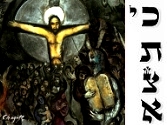 [ This week's Torah reading (parashat Ki Teitzei) is always read during the month of Elul... ]
08.21.20 (Elul 1, 5780) One of the great Hebrew names of God is El Elyon (אֵל עֶלְיוֹן), often translated as "God Most High." The name first appears in the Torah regarding the mysterious figure of Malki-Tzedek (מַלְכִּי־צֶדֶק), the timeless king and priest of Zion who served "bread and wine" to our father Abraham – alluding to the sacraments later used to commemorate our redemption (Gen. 14:18). As the timeless king and priest of God, Malki-Tzedek is a "theophany," or a revelation of the LORD our God Yeshua before He emptied Himself and made his descent to this world (Phil. 2:7; Heb. 7:3). Yeshua is our great King of Kings and High Priest of the New Covenant, a better covenant that restores the kingship and priesthood back to God Himself (Heb. 7:12).
Now the Hebrew term "Elyon" itself (עֶלְיוֹן) comes from a root word (עָלָה) that means "to ascend" or "to lift up." For instance, an "olah offering" (עלָה) is a whole burnt offering that ascends upward to heaven, and "aliyah" (עֲלִיָּה) means "going up" to the land of Israel. The word "Elyon," then, expresses the truth that the LORD is the Resurrected One who overcame all the powers of hell and utterly vanquished death's power. In other words, Elyon is a name for the LORD our God Yeshua.
08.21.20 (Elul 1, 5780) Repentance means that we believe that the kindness of God can give life to our dead hearts. Repentance is therefore first of all a matter of faith, of believing in the miracle of God. And though it is a great gift from heaven, repentance requires honesty and acknowledgment of the truth. We must confess our inner poverty, our neediness, and mourn over the loss and hurt caused by our sin (Matt. 5:3-5). Repentance turns away from our attempts to defend or justify ourselves and instead turns to God to heal our separation from Him (Rom. 8:3-4). This turning of the heart to God for healing and life is the essence of teshuvah wherein our old nature is buried and all things are made new (2 Cor. 5:17).
It is no small thing to believe the message of Yeshua, and indeed, it involves a passionate inwardness that scandalizes the rational mind. Our father Abraham is extolled as the model of righteous faith, but he was tested to sacrifice the moral law (e.g., "thou shalt not murder") when he lifted up the knife to slay his beloved son Isaac. Faith requires you to change your everyday thinking, to go beyond natural expectations, to "walk on water." In the case of Yeshua, we are confronted with the "Absolute Paradox," namely, the God-Man, the Infinite-made-Finite, the Holy-made-Profane, the Sinless-made-Sin, who says to you: "I AM the resurrection and the life. Whoever believes in me, though he die, yet shall he live, and everyone who lives and believes in me shall never die. Do you believe this?" (John 11:25-26). You will never die; you will never hunger; you are made whole through my brokenness; you will be cleansed by my defilement, and so on. It's not just hard to believe, it's impossible, which is why it is a miracle of God to be saved (Matt. 19:26). "It is the Spirit that gives life; the flesh is no help at all" (John 6:33). The difference is Yeshua: Salvation is of the LORD. We are enabled to love and know God by means of his inner life and spirit, not by means of good intentions or religious zeal. Faith itself is a miracle, the power of God....
08.21.20 (Elul 1, 5780) You are invited to come before the Divine Presence - you are welcomed with joy - because of the glory of God's love given to you in Yeshua... And while you can never "earn" God's love, of course, you must take hold of it by faith, as Yeshua said: "This is the work of God - that you believe in the One whom God sent (John 6:29). This is the great work of the heart: learning to believe that Yeshua was given for your sake, because you are redeemable and have infinite value in the eyes of heaven. Faith finds courage to accept God's love, despite whatever tempts you to feel unworthy or unacceptable. It pushes past the superficial view that you can please God by what you do, instead of enjoying God by knowing who He is: God is love; God is Light; He is Faithfulness, the Savior of your life... Faith works through his love (Gal. 5:6).
08.21.20 (Elul 1, 5780) There is the great danger of squandering and dissipating our lives... Examine yourself; consider what really moves you. Be careful not to deceive yourself by "reasoning around the truth" (i.e., παρα + λογίζομαι), as James the Righteous puts it (James 1:22). Many people fool themselves by assuming they know or understand what is good, but they confine this ideal to a matter of opinion rather than experiencing it as a matter of the will (or they confuse their opinion of the ideal with what is real). Some of the ancient Greek philosophers assumed that moral evil was the result of ignorance, and that simply knowing the good would lead to doing the good. For example Socrates states (in the Protagoras) that no one knowingly does the wrong thing, and therefore all evil is the result of ignorance. He argues this way because he assumes that doing wrong harms the soul, and since no one willingly acts against his own interests, wrongdoing must be result of ignorance. This optimistic view implies that the answer to the problem of moral evil is "education," or leading people out of the dark cave of their lower nature to experience the light of reason. If we just really understood why doing this or that sinful thing hurts us, we would change our ways and repent, or so the theory goes... Alas, human experience proves that such "head knowledge" often does not change the way we choose, and we all know intelligent people who have habits they realize are harmful but continue to indulge in them anyway.
The spiritual danger here is being "pulled apart" in opposite directions, dissipating the soul so that it will not be unified, focused and directed. Both loving and hating the good is a state of painful inner conflict, ambivalence, and self-contradiction. "Who can bring a clean thing out of an unclean? there is not one" (Job 14:4), yet this is our starting point: "I find it to be a law that when I want to do right, evil lies close at hand" (Rom. 7:21). We are often willing and unwilling, or neither willing nor unwilling, and this makes us inwardly divided, weak, fragmented, anxious, and "soulless." An honest faith that "wills one thing" binds the soul into a unity, or an authentic "self." As King David said, "One thing have I asked of the LORD, that will I seek after: that I may dwell in the house of the LORD all the days of my life, to gaze upon the beauty of the LORD and to inquire in his temple" (Psalm 27:4). דִּרְשׁוּ יְהוָה בְּהִמָּצְאו deer·shoo · Adonai · be·hee·matz·oh "Seek the LORD while he may be found; God responds to those who sincerely cry out to him (Psalm 145:18). He is "near to the brokenhearted and saves the crushed in spirit" (Psalm 34:18). Indeed, salvation is as close as your own mouth and heart (Rom. 10:8-13). But how many are the days of your life? How many opportunities for you to make up your mind? "How long will you go limping between two opinions?" Therefore choose this day whom you will serve. Make the first step; open your heart, and the LORD will then help you make the wholehearted decision to "seek the LORD while He may be found; call upon Him while He is near." Amen.
08.21.20 (Elul 1, 5780) It is written in our Scriptures: "The fool has said in his heart, 'There is no God' (אָמַר נָבָל בְּלִבּוֹ אֵין אֱלהִים). Indeed Psalm 14 teaches us that the willful denial of reality is an affront to heaven, contempt shown for the gift of life, and sacrilege of all that is worthy. It is sheer folly to regard life apart from the fear of the LORD, for that is reishit chokhmah - the beginning of wisdom (Psalm 111:10). The existence of God is the First Principle of all sound reasoning regarding reality (Rom. 1:20). The so-called "postmodern world" is notorious for failing to explain anything of substantive meaning. Everything is left unexplained; no narrative is permitted (except the narrative that there is no narrative, of course); no logical connections to a "real world" are sound; there is no "story" to our lives, and therefore postmodernism fatuously misses the essential point of everything. King David asked, "Who shall abide before the Presence of the LORD?" and the Spirit replied: "the one who walks blamelessly and does what is right and speaks truth in his heart" (Psalm 15:2). It is the one who is honest – "the one who speaks truth within his heart" (דבֵר אֱמֶת בִּלְבָבוֹ) that dwells in the "tent of the LORD," for God is called the God of Truth (אֵל אֱמֶת), the Faithful God (אֵל אֱמוּנָה). In heaven there is only the language of truth, and truth is the language of heaven. The "pure in heart" – that is, those who accept the truth of their inner condition, who acknowledge their lost condition, mourning over their lives, and who find themselves starving for God's deliverance – these are the ones who shall behold God (Matt. 5:2-6). The radical left is doing the work of God today, not because they are righteous, oh no, but by being the unwitting scourge on the back of an insipid and immoral culture that despises godly truth and justice... You wanted relativism and anarchy, now you have it, America....
It is, I think, safe to say that nothing was more alien to the minds of the scientists, who brought about the most radical and most rapid revolutionary process the world has ever seen, than any will to power. Nothing was more remote than any wish to 'conquer space' and to go to the moon. It was indeed their search for 'true reality' that led them to lose confidence in appearances, in the phenomena as they reveal themselves of their own accord to human sense and reason. They were inspired by an extraordinary love of harmony and lawfulness which taught them that they would have to step outside any merely given sequence or series of occurrences if they wanted to discover the overall beauty and order of the whole, that is, the universe." (Hannah Arendt)
08.20.20 (Av 30, 5780) Teshuvah, or "turning to God," is a daily practice in our lives, of course, not just something we do during the "Forty Days of Teshuvah." We always live just one day at a time: "Each day is a little life; every waking and rising a little birth; every fresh morning a little youth; every going to rest and sleep a little death" (Arthur Schopenhauer). We often struggle with selfish attachments, but these things often become sources of unhappiness for us. Part of teshuvah is learning to let go of those things we cling to for support but which actually are holding us back... The sages liken the process of spiritual growth with the analogy of how a father might teach his infant son how to take his first steps. Once the child makes a fumbling effort to stand up, the father will come closer, extending his hands, encouraging the child to come to him. As the child takes a faltering step, the father moves back just a little so the child will try to take another step. The child may think he is making no progress reaching his goal, but the father's aim is to teach the child to walk. This story is meant to illustrate the point that you move forward as you seek, and such seeking is the way you draw close to Him:. "You will seek me and find me when you search for me with all your heart" (Jer. 29:13).
Along these lines C.S. Lewis once said: "The real problem of the Christian life comes where people do not usually look for it. It comes the very moment you wake up each morning. All your wishes and hopes for the day rush at you like wild animals. And the first job each morning consists simply in shoving them all back; in listening to that other voice, taking that other point of view, letting that other larger, stronger, quieter life come flowing in. And so on, all day. Standing back from all your natural fussings and frettings; coming in out of the wind. We can only do it for moments at first. But from these moments the new sort of life will be spreading through our system: because now we are letting work at the right part of us... " (Mere Christianity). This is the practical outworking of what God has worked into us through the gift of his life (Phil 2:12-13). The first real step is to be connected to your Father, trusting in his loving presence, as you attempt to take a step closer to him. But do not be discouraged if you seem to be making slow progress, because the heart of your Father knows that your seeking him is essential to finding his steady hand to both uphold your way and to eventually give you the balance and strength to walk together with him... We grow as we draw close to the heart of our loving heavenly Father.
[ The following is related to the month of Elul and the theme of teshuvah (repentance)... ]
[ The following is related to the month of Elul and the theme of teshuvah (repentance)... ]
A proven faith is one that evidences the Fruit of the Holy Spirit, though other characteristics include an abhorrence for personal sin and the desire to obtain God's forgiveness; a hunger and thirst for God's righteousness to be manifest; a sincere willingness to obey the LORD and keep His commandments, and a heartfelt love for God and others. These characteristics mark genuine teshuvah ("repentance"), that is, a turning away from inner darkness to the light of the Divine Presence. Teshuvah is a miracle that transforms the person so that the inner life is restructured and made into a new creation by means of God's grace (2 Cor. 5:17). Spiritual rebirth implies a new heart with a new set of affections: "I am crucified with Messiah; it is no longer I who live, but Messiah who lives in me. And the life I now live in the flesh I live by faith in the Son of God, who loved me and gave himself for me" (Gal. 2:20). Reb Lev said, 'A tzaddik is one who lives Torah, not one who preaches it. Your actions, not your words! You have to be Torah: your habits, your motions, even your silences - are what count..." There remains the frightening possibility that the soul - even the soul that professes faith in the Messiah - may fail the test of genuine faith and be rejected (i.e., adokimos: ἀδόκιμος, "tested and found useless"). A person who merely professes love for God with his lips but whose heart is far from Him will eventually hear the verdict of truth, which ratifies the inner life of the soul: "Depart from Me, I never knew you..." This is the like-for-like principle of faith, the reciprocity of the inner life of the soul. Our faith in Messiah must be unalloyed - pure, without compromise in its composition and character. May God help each of us...
08.20.20 (Av 30, 5780) There is a price to be paid for the miracle of God being manifest in our lives. The message of the cross means confessing the truth about who we are and how we have failed the test of faith. Yeshua does not appeal to the self-righteous ones to come for healing, but rather to the sin-sick and weary: "Those who are well have no need of a physician, but those who are sick. I came not to call the righteous, but sinners" (Mark 2:17). The LORD wants us to be honest with ourselves: הֵן־אֱמֶת חָפַצְתָּ בַטֻּחוֹת hein-e·met · cha·fatz'·ta · va·too·choht "Behold, You delight in truth in the inward being, Click to learn to read the Hebrew text: The Tenth Commandment says, "do not covet" anything that belongs to your neighbor (Deut. 5:21), though the Hebrew does not simply say "do not desire" (i.e., לא תְאַוֶּה) but rather "do not bring yourself into a state of desire" (i.e., לא תִתְאַוֶּה), the verb in this case (אָוַה) being "hitpael" (reflexive), that is, expressing the relationship within yourself to the truth of God. As Soren Kierkegaard once said, the "self" expresses a relation with itself, and the "how" of that relation determines what sort of self we are... God does not command us like someone might train a dog; he instructs us to awaken to what we are doing, to take responsibility for our lives, and not to yield our hearts to envy, despair, and sorrow. If you repent of sin without looking to Christ, away with your repentance! If you are so lamenting your sin as to forget the Savior, you have need to begin all this work over again. By no means look at your sin except as you look at Jesus. A man may hate sin just as a murderer hates the gallows – but this does not prove repentance. If I hate sin because of the punishment, I have not repented of sin – I merely regret that God is just. But if I can see sin as an offense against Jesus Christ and loathe myself because I have wounded Him, then I have a true brokenness of heart. Only under the Cross can you repent. Repentance elsewhere is remorse which clings to the sin and only dreads the punishment. Let us then seek, under God, to have a hatred of sin caused by a sight of Christ's love. - C.H. Spurgeon We must begin by asking God for courage and strength... We must let go of the fear that we will discover the truth about who we really are -- about what we've done, what we've thought, about who we've allowed ourselves to become. Confession (ὁμολογία) means bringing yourself naked before the Divine Light to agree with the truth about who you are. Indeed, the word homologeo literally means "saying the same thing" - from ὁμός (same) and λόγος (word). We need to confess the truth if we are to be free from the pain of the past. When King David wrote, "The LORD is my Light and my salvation; whom shall I fear? (Psalm 27:1), he implied that he should even be free of fear of himself and of his past.... We also need to understand our sin in relationship to the wounds of the Savior, since without that connection, our repentance will be vain indeed.... The road that stretches before our feet is a challenge to the heart long before it tests the strength of our legs. Our destiny is to run to the edge of the world and beyond, off into the darkness; assured - for all our blindness; secure - for all our weakness; joyfully in love - for all the pressure on our hearts... In that darkness beyond the world we can begin to know the world and ourselves, we begin to understand that we not made to pace out our lives behind prison walls, but to walk into the arms of God." (quote of Thomas Aquinas in Farrell and Healy: "My Way of Life," 1952.) Of course it is a struggle to keep our focus along the way, and there are various tests we all will experience, including the tests of apathy, weariness, confusion, and so on... We must ask the LORD God of Israel to awaken us to His resurrected and all-glorious Presence. His radiance fills the heaven and the earth, and by faith we take hold of hope with wonder, praise, and great joy.... May it please God to help each of us "put on the new self, created after the likeness of God in true righteousness and holiness" (Eph. 4:24). Amen.
08.20.20 (Av 30, 5780) It is an ongoing struggle to live in this world without being devoured by its fear, insanity, and violence. Yeshua prayed for his followers saying, "I am not asking you to take them from the world but to keep them from the evil one. They do not belong to the world any more than I belong to this world" (John 17:15-16). To live in the world without belonging to the world marks the life of the tzaddikim (righteous ones) who are seeking the house of love, the place where God abides. Even though we are given "traveling mercies" for our journey in this world, we must lift our heart toward heaven, scorning the world and its vanities, and regarding the place of God's heart to be our true home. Abraham closed his eyes to this world and was given the inner light of truth that would reveal his way to God. "By faith Abraham obeyed when he was called to go out to a place that he was to receive as an inheritance. And he went out, not knowing where he was going (μὴ ἐπιστάμενος ποῦ ἔρχεται). By faith he sojourned in the land of promise as in a strange land, living in tents with Isaac and Jacob, heirs with him of the same promise. For he was looking forward to the city that has foundations, whose designer and builder is God" (Heb. 11:8-10). For here we have no lasting city, but we seek the city that is to come (Heb. 13:14). So lift up your soul unto the LORD and refuse to live in fear. Stand strong in faith, trusting God's promise even if you are in darkness. As it is written: "Blessed is the one who makes the LORD his trust" (Psalm 40:4).
[ Tonight at sundown marks Chodesh Elul and the beginning of the 40 days of Teshuvah... ]
The message of the gospel (i.e., הבשורה, from the word basar) requires that you regard yourself as worth dying for, that you are God's friend... "There is no greater love than this: that someone lay down his life for his friends" (John 15:13). God quite literally demands that you regard yourself as benefitted by the sacrifice of his beloved son Yeshua in your place; he demands that you understand how dear you are to his heart. God sees something of such great value in you that he was willing to suffer and die to redeem it from loss... Just as the kingdom of God is a "pearl of great price," so you are a pearl of great price to God. What grieves and angers God is the refusal to believe that you are someone of infinite importance to him... Only God can rightfully make such a demand because He knows that loving other things more than Him leads to "disordered love," darkness, and eventual madness. We were made for God's love, but substituting finite things for this infinite need will never suffice to bring lasting healing to our souls... וְאַהֲבַת עוֹלָם אֲהַבְתִּיךְ ve·a·ha·vat o·lam a·hav·teekh "I have loved you with an everlasting love;
Genuine repentance will entirely change you. It is an act of profound respect over what God has done on your behalf. You say, but I am a miserable wretch! Indeed that is so, but the consciousness of your wretched state is the heart's cry for love... God goes "outside the camp" to meet with you. He enters the leper colony to join you there, in your wretchedness, and even takes upon your fatal disease. He sees you in your desperate estate and joins you there. God enters into the dust of your death and says, "Live!"
[ Wednesday, Aug. 19th (at sundown) marks Rosh Chodesh Elul and the beginning of the 40 days of Teshuvah. May this be a time of renewal and blessing for you, friend... ]
08.18.20 (Av 28, 5780) In our Torah portion for this week (Shoftim) we read: "You shall be wholehearted with the LORD your God" (Deut. 18:13). Note that the word "wholehearted" in this verse (i.e., tamim: תָּמִים) is often translated as "perfect" or "blameless" in many Bible versions, though it is better to understand the word to connote being made "complete" or "whole." When God said to Abraham, "I am El Shaddai; walk before me and be tamim (Gen. 17:1), he was not saying "be perfect" or "don't ever make a mistake," but rather be fully engaged, that is, to walk before God passionately, sincerely, with all his heart, and by doing so to "walk out" the relationship with full assurance that he is accepted and beloved by God. Likewise when Yeshua said "Be therefore perfect as your Father who is in heaven is perfect" (Matt. 5:48), he meant that we should be complete, finished, and "made whole" by knowing and receiving the overflowing love and light of God. תָּמִים תִּהְיֶה עִם יְהוָה אֱלהֶיךָ ta·meem tee·he·yeh eem Adonai e·lo·hey'·kha "You shall be whole with the LORD your God"
"You shall be wholehearted" is a mandate to know who you are, to know what is truly good as distinguished from what is evil, and to be united with God's passion to be healed from your inner conflicts and ambivalence (δίψυχος). We are made "whole" or "perfect" (i.e., complete) when we resolutely turn to God for healing of what divides our hearts, as it says: "The Torah of the LORD is perfect (תָּמִים), returning the soul" (Psalm 19:8). Understand the Torah's commandment, then: "You shall be tamim (i.e., whole and wholehearted) with the LORD your God," to be a prophecy of transformation for your life, friend... Amen: May you know "the love of Messiah that surpasses knowledge and be filled with all the fullness of God" (Eph. 3:19). אַשְׁרֵי תְמִימֵי־דָרֶךְ ash·rei · te·mee·mei - da'·rekh "Blessed are the wholehearted in the way,
Here we see that "walking in the instruction (Torah) of the LORD" is the means by which we are able to walk humbly with God. The study and practice of Torah, then, helps us to become tamim: wholehearted, resolute, and committed to God. Walking in God's truth also makes us happy (i.e., me'ushar: מְאֻשָּׁר, from the verb ashar that means to "walk straight"). As we walk in the truth of God, we begin to experience inner peace and a sense of abiding joy...
For more on this topic please see: "Make Up Your Mind: Further thoughts on Shoftim."
08.18.20 (Av 28, 5780) Those who evade the truth about reality – those who willingly suppress the truth and choose to ignore the ultimate existential pathos of the human condition – must "steal" meaning and a sense of value from the heart of faith. "If a human being did not have an eternal consciousness, if underlying everything there was only a wild, fermenting power that writhing in dark passions produced everything, be it significant or insignificant, if a vast, never appeased emptiness hid beneath everything, what would life be but despair?" (Kierkegaard: Fear and Trembling). The hidden source of anxiety is to be lost to real meaning – to sense the dread of the inevitable and the unknown and to be utterly confounded and devoid of direction in the face of it. The Torah of Yeshua is heeded by the "impoverished of spirit" who know they must "find God or die." It is first a word spoken to the shattered of heart and crushed of spirit. As Augustine said, "You have made us for yourself, O Lord, and our hearts are restless until they rest in you." We all desperately need God, and it is a profound tragedy to be unresponsive to real hope. Friend, if you sense the invitation of the Spirit, which moves unseen as the wind, then draw near while there is still time! "Seek the LORD while he may be found; call upon him while he is near" (Isa. 55:6).
08.18.20 (Av 28, 5780) Have you ever considered what the "self" really is? We tend to think of it, I suppose, as a conscious and emotional "center" of experience that is distinct from others and that has a sense of continuity through time and place. However, the self (or soul) has the ability to "transcend" itself, that is, to become conscious of itself, and this sets up an inner "dialog" within that enables the self to examine its own thinking, or to regard itself in relation to itself.... In this connection Soren Kierkegaard wrote of two types of "despair," by which he meant a condition of being wrongly related to your self. First, you can despair by rejecting (or denying) the self, and second, you can despair by elevating and exalting your self. In the first case the self is "lost" or abandoned by various forms of escapism; in the second case, the self is "idolized" and given god-like prerogative; in either case, however, the self is in despair because it is not grounded in the truth of reality, since there can be no true "self" apart from relationship with God who is the ground of all being... Note: Though we are given a new heart at the time of our regeneration, we are still saddled with the sinful lower nature, and that explains why we are instructed to become sanctified by "putting on" our spiritual self and "putting off" the carnal one (see Gal. 3:27; Eph. 4:24; Col. 3:10; 1 Thess. 4:3; etc.). We are to "mortify" (put to death) the sinful nature by faith in the power and provision of God (Col. 3:5; Rom. 8:13) As it is written: "The night is far gone; the day is at hand. So then let us cast off the works of darkness and put on the armor of light. Let us walk properly as in the daytime, not in orgies and drunkenness, not in sexual immorality and sensuality, not in quarreling and jealousy. But put on the Lord Yeshua the Messiah, and make no provision for the flesh, to gratify its desires" (Rom. 13:12-14).
08.17.20 (Av 27, 5780) The Scriptures reveal that creation is "teleological," which means that it is "going someplace" and that there is order and purpose to our existence. Your life is not adrift in a random universe that is destined to ultimately fade away but is grounded in the Divine Mind and Will that personally supervises and pervades all things. A lack of emunah (faith) has been likened to a passenger flying on an airplane who doesn't believe there is a pilot in the cockpit... Faith in the LORD believes that a single supreme, all-knowing, all-powerful and benevolent spiritual Power directs all things, and that God is the beginning, middle, and end of all conscious meaning, truth, and substance, as it is written: כִּי הַכּל מִיָּדוֹ הַכּל בּוֹ וְהַכּל לוֹ הוּא, "For from him and through him and to him are all things" (Rom. 11:36). A life of faith in the one true God imparts the blessing of shalom (inner peace) and assures the heart that all shall be made well by the love of God. Everything God does is for the very best, and there are no exceptions to this truth (Rom. 8:28).
So be encouraged, friend. You do not need to struggle alone – bitter and afraid that you might be swallowed up in your infirmities… God knows the groan of your struggle and invites you to find solace and strength in Him. "It is enough to open your heart the smallest amount - even the width of a pin - to repent, so that you feel a stab within your heart, like a piercing sting in living tissue, not like a needle thrust into dead flesh" (Menachem Mendel of Kotzk). Bittachon (בִּטָּחוֹן) is a Hebrew word that means trust in God... Those who have bittachon do not worry about the future because their faith fully permeates their heart and mind, enabling them to surrender their cares and burdens to the Lord.
08.17.20 (Av 27, 5780) The assumption at work behind the call to do teshuvah is that your life matters and that your actions carry profound significance - both in this world and in the world to come. Sin is so dangerous because it damages our very essence, and if unremedied, such damage will be irreversible. Therefore today is the day to seek healing, for your days are numbered in this world and every day you live ratifies the end of your life. The sages say "mitzvah goreret mitzvah" - "the reward for one mitzvah (i.e., blessing) is another mitzvah" (Avot 4:2), though the corollary is also true, "the reward for a sin is another." "It is a serious thing to live in a society of possible gods and goddesses, to remember that the dullest most uninteresting person you can talk to may one day be a creature which, if you saw it now, you would be strongly tempted to worship, or else a horror and a corruption such as you now meet, if at all, only in a nightmare. All day long we are, in some degree [going] to one or the other of these destinations. It is in the light of these overwhelming possibilities, it is with the awe and the circumspection proper to them, that we should conduct all of our dealings..." (C.S. Lewis: Weight of Glory) In the Talmud (Makkot 2:6) we read, "They asked of Wisdom: 'What is the sinner's punishment?' It replied, "Evil pursues the sinners" (Prov. 13:21). They asked Prophecy: 'What is the sinner's punishment?' It replied, "The soul that sins shall die" (Ezek. 18:4). Then they asked the Holy One, blessed be He, 'What is the sinner's punishment?' He replied, "He should turn to me and be forgiven. This is the meaning of the verse, "Therefore he guides sinners in the way" (Psalm 25:8) - God guides sinners to do teshuvah in order to find life.
What do you feel inside when you stare up at the ceiling before you go to bed? In light of the ambiguity and heartaches of life we might wonder if God is there for us. Does God care? Is He angry at me? Does He really love me? This is the raw place of faith, where we live in the midst of our questions. The Name YHVH means "He is present," even when we are unconscious of His Presence in the hour of our greatest need. Ask God to teach you the way you should go. [ The following entry concerns this week's Torah reading, parashat Shoftim. ]
08.17.20 (Av 27, 5780) The last month of the Jewish calendar (counting from Tishri) is called Elul (אֱלוּל), which begins at sundown on Wednesday, August 19th this year. Traditionally, Rosh Chodesh Elul marks the beginning of a forty day "Season of Teshuvah" that culminates on the solemn holiday of Yom Kippur. The month of Elul is therefore a time set aside each year to prepare for the Yamim Nora'im, the "Days of Awe," by getting our spiritual house in order. יְהוָה אוֹרִי וְיִשְׁעִי מִמִּי אִירָא Adonai oh·ree ve·yeesh·ee · mee·mee ee·rah "The LORD is my light and my salvation; whom shall I fear? Being honest with ourselves is essential for any sort of authentic spiritual life... "Not everything that is faced can be changed; but nothing can be changed until it is faced" (James Baldwin). "No person is saved except by grace; but there is one sin that makes grace impossible, and that is dishonesty; and there is one thing God must forever and unconditionally require, and that is honesty" (Kierkegaard). Amen. Confession means "saying the same thing" about ourselves that God says - and that means not only acknowledging our various sins, transgressions, and iniquities, but also affirming our beloved place in his heart. Saying that God doesn't love you is a lie as damning as denying His very existence... יְהִי רָצוֹן מִלְּפָנֵיךָ יהוה אֱלהֵינוּ ye·hee · ra·tzon · meel·fa·ney'·kha · Adonai · E·lo·hey'·noo "May it be Your will, LORD our God and God of our fathers,
08.16.20 (Av 26, 5780) Our Torah reading for this week (parashat Shoftim) begins with the commandment that the people of Israel should appoint judges (i.e., shoftim: שׁפְטִים) and officers (i.e., shoterim: שׁוֹטְרִים) so that justice would be enforced throughout the promised land (Deut. 16:18). The call for justice is famously stated as, "tzedek, tzedek tirdof" (צֶדֶק צֶדֶק תִּרְדּף): "Justice, Justice you shall pursue" (Deut. 16:20). The word tzedek means "righteousness" and involves the duty to adhere to moral truth. Throughout the Torah portion the theme of social justice predominates, as the ethical characteristics for judges are defined, as well as for elders, kings, prophets, and priests, all of whom are responsible for maintaining a just and healthful society. As the prophet wrote: "The work of righteousness (tzedakah) shall be peace" (וְהָיָה מַעֲשֵׂה הַצְּדָקָה שָׁלוֹם), and added that "the service of righteousness (וַעֲבדַת הַצְּדָקָה) shall be quietness and security forever" (Isa. 32:17).
The call for justice, "tzedek, tzedek tirdof" (צֶדֶק צֶדֶק תִּרְדּף) is emphatically stated to teach that justice must be pursued in an entirely just manner, that is, the methods used to obtain justice must themselves be just... The Scriptures therefore do not advocate pragmatism or utilitarian thinking. There are no "noble lies" in the Kingdom of Heaven. Violence (verbal or physical) or deception done in the name of God is always forbidden and will be judged by the LORD. We must execute great restraint and caution when we seek to confront oppression in the world. If you want to change the world around you, begin with yourself....
The Paths of the LORD... 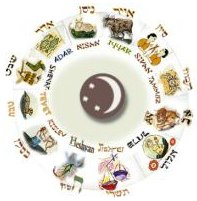 08.14.20 (Av 24, 5780) Our Torah reading for this week (i.e., Re'eh) concludes with the commandment to make three "pilgrimage festivals" (i.e., shelosh regalim) each year: Passover, Shavuot (Pentecost), and Sukkot (Tabernacles). In the Torah, these "holidays" are called "appointed times" (i.e., mo'edim: מוֹעֲדִים), a word which comes from a root meaning witness (עֵד). Other words formed from this root include edah (עֵדָה), a congregation, edut (עֵדוּת), a testimony, and so on. The related verb ya'ad (יָעַד) means to meet, assemble, or even to betroth. The significance of the holy days, then, is for the covenant people of the LORD to bear witness to God's love and faithfulness by revisiting our history and by looking forward to their ultimate fulfillment, when we no longer pass through this world but abide in the heavenly reality. Meanwhile we trust in God's prophetic plan as revealed in the holy calendar, and observe the seasons as he has commanded. As it says, "All the paths of the LORD are love and truth to to those keeping his covenant and his testimonies" (Psalm 25:10). כָּל־אָרְחוֹת יְהוָה חֶסֶד וֶאֱמֶת kol-ohr·choht · Adonai · che'·sed · ve·e·met "All the paths of the LORD are love and truth
Metaphorically the paths of the Lord (i.e., orechot Adonai) are likened to ruts or grooves created by the wheels of a caravan (אוֹרחָה) passing repeatedly over the same ground. These paths signify the Divine Presence journeying with God's children in this world. In temporal terms, we are able to discern the path by means of the divine calendar. God's love and faithfulness attend to His covenant (brit) and to the commemorations of the yearly "appointed times" which testify to God's love and faithfulness. Keeping God's testimonies, then, means that we will be careful to observe the holidays in order to witness to God's truth...
Knowing who you are...  08.14.20 (Av 24, 5780) We need to praise God to know who we are, to know why we were created, and to realize for what purpose we are to live in this world, as it is written, "I have formed this people for Myself; they shall recount my praise" (Isa. 43:21). Praising God means saying ani l'dodi (אֲנִי לְדוֹדִי), my life belongs to God, who is my Beloved (Song 6:3). This is the essence of who we are and why we are called God's people, to "proclaim the excellencies (ἀρετὰς) of Him who has called us out of darkness into His marvelous light" (1 Pet. 2:9).
Believing and Seeing... 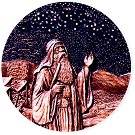 [ The following entry concerns this week's Torah reading, parashat Re'eh: "See!" ] "You teach," said Emperor Trajan to Rabbi Joshua, "that your God is everywhere, yet I cannot see him." Joshua said that unlike human kings, the LORD was too powerful for people to see; as it is written in the Torah: "No person shall see Me and live." The emperor was skeptical, however, and insisted that unless he could see God, he would be unable to believe. Joshua then pointed to the sun high in the sky: "Look into the sun and you will see God." The emperor tried to look into the sun, but was forced to cover his eyes to keep them from burning: "I cannot look into the sun," he said. Joshua then replied: "Listen to yourself: If you cannot look into the sun which is but one of God's creations, how can you expect to look at God?" (Sefer HaAggadah)
Teshuvah and Brokenness... 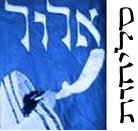 [ The following concerns the "Season of Repentance" which begins August 19th this year... ]
The Great Tree of Life...  08.13.20 (Av 23, 5780) The Bible begins and ends with the great Tree of Life -- first in the orchard of Eden, and later in the midst of the paradise of heaven. "The Tree of Life (i.e., etz ha' chayim: עֵץ הַחַיִּים) was in the midst of the garden..." (Gen. 2:9); "Then the angel showed me the river of the water of life, bright as crystal, flowing from the throne of God and of the Lamb through the middle of the street of the city; also, on either side of the river, the Tree of Life (etz ha-chayim) with its twelve kinds of fruit, yielding its fruit each month" (Rev. 22:1-2). Notice that the "twelve fruits" (καρποὺς δώδεκα) from the Tree of Life are directly linked to the "twelve months" of the Jewish year (κατὰ μῆνα ἕκαστον ἀποδιδοῦν τὸν καρπὸν αὐτοῦ: "each month rendering its fruit"). Twelve months; twelve fruits.... This teaches us that the sequence of the holidays (moedim) was intended to teach us revelation about God. That is why God created the Sun and the Moon for signs and for "appointed times" (Gen. 1:14), as it also says: "He made the moon to mark the appointed times (לְמוֹעֲדִים); the sun knows its time for setting" (Psalm 104:19). עֵץ־חַיִּים הִיא לַמַּחֲזִיקִים בָּהּ eitz-cha·yeem · hee · la·ma'·cha·zee·keem · bah "A tree of life is Torah to those who take hold of it;
O Lord, Heal my Life...  08.13.20 (Av 23, 5780) "Be merciful to me, O Lord, a sinner..." (Luke 18:13). Here there is no litany of sins recited; no lengthy confession, no inventory of misdeeds enumerated, but rather a wholesale confrontation with the reality of the heart's sin-sick condition. It's not this or that sin that sends us into exile but a heart unwilling to confront God's mercy. We aren't sinners because we sin; we sin because we are sinners, and therefore the issue of God's mercy is total and severe. Our essential problem is spiritual death, being "stillborn in the natural," and therefore we need the miracle of a new life. Focusing on our sinful deeds misses the point of our heart's need for radical mercy, and as long as we are missing that we are running away from the truth of our underlying sin, which is the denial of our lost condition and our need for love. We must begin there, with the confession of our inner poverty, to find healing and grace to seriously attend to matters of our misdeeds and sins before heaven. אֲנִי־אָמַרְתִּי יְהוָה חָנֵּנִי a-nee- a-mar'-tee · Adonai · choh-nei'-nee "I said, 'O LORD, be gracious to me;
Daily Dvar Podcast: The Torah of Messiah... 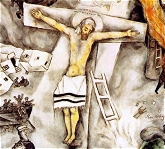 08.13.20 (Av 23, 5780) Shalom chaverim. In this audio podcast (see the links below), I sort through some of the tensions we might experience when we consider whether Christians are required to follow the law of Moses or whether there is another way in light of the ministry of Yeshua the Messiah. I hope you will find it helpful.
Walking after the LORD...  [ The following is related to our Torah reading for this week, parashat Re'eh.... ]
Brokenness distills the intentions of the heart by helping us to be more honest with ourselves. We begin to realize that we are more vulnerable than at first we thought; that our faith is not as strong as we imagined, and that our motives are often mixed and unconscious. Illusions are striped away; idols crumble; deeper levels of selfishness are uncovered; the gap between our words and our deeds is exposed... It is one thing, after all, to intellectually think about faith or to idealize spirituality, but it is quite another to walk out faith in darkness. Yet it is only there, in the rawness of heart, that we discover what we really believe and how our faith makes traction with reality...
Note: Thank you all so much for remembering this ministry in your prayers, for without your help I just couldn't do this work. May the LORD our God's blessing be upon you...
Torah's Weightier Matters...  [ The following entry concerns this week's Torah reading, parashat Re'eh... ]
Remember who you are...  [ The following entry concerns this week's Torah reading, parashat Re'eh... ]
Note: For more on this very important topic, please see the article "Am Segulah."
Seeing the Blessing... 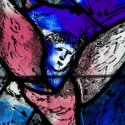 [ The following is related to our Torah reading for this week, parashat Re'eh.... ]
Teshuvah of the Mind...  08.12.20 (Av 22, 5780) We are responsible to walk in truth and to reject what is false (1 John 4:6). This implies that we have a moral and spiritual duty to think clearly and not to abuse our minds (Phil. 4:8; Rom. 12:2). The LORD our God will help us to do this, as Yeshua said: "I will ask the Father, and he will give you a Helper (παράκλητος, someone "called to one's side"), to be with you forever, even the Spirit of Truth (רוּחַ הָאֱמֶת), whom the world cannot receive, because it neither sees him nor knows him" (John 14:16-17). The Spirit of Truth helps us "discern what is the will of God, what is good, acceptable, and perfect" (Rom. 12:2) and empowers us to take "every thought captive" to the reality of the Divine Presence (2 Cor. 10:4-5). Truth is connected to memory - both in our personal histories as well as the history of God's redemptive actions performed on our behalf. Hence we are constantly commanded to remember what God has done for us and to "diligently repeat" the truth to our children (Deut. 6:4-9). Similarly, the Spirit of Truth brings to remembrance the words of Yeshua to our hearts (John 14:26).
The Seeking Savior... 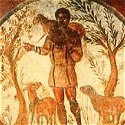 08.11.20 (Av 21, 5780) "Those who are well have no need of a physician, but those who are sick" (Matt. 9:12). Even though we are weak, sickly, broken, and sinful people, we must never lose hope and begin to fear that we do not belong to the Kingdom of the Messiah... Indeed, our infirmities are often a blessing in disguise, a gift that reveals our need... If you are sinful and sick, you are invited to come before the Master for life and rescue from the power of sin. Take your place among the lepers, the tax collectors, the outcasts... you will never hear Him criticize you or shame you for sincerely coming to Him for healing of your sinful state... "For the Son of Man came to seek and to save the lost" (Luke 19:10). Yeshua is the Good Shepherd (הָרעֶה הַטּוֹב) who leaves his flock of 99 sheep in order to find the one sheep who is lost (Matt. 18:12-14). He is always like that – He is always seeking and saving the lost sinner; He is always offering life and healing to those who have been made sick with the plague of sin. Thank God we have a Savior who seeks us out in our desperate need! לְכוּ וְנָשׁוּבָה אֶל־יְהוָה le·khoo · ve·na·shoo'·vah · el-Adonai "Come, let us return to the LORD; Click to listen and learn the Hebrew text: King David wrote, "You have given those who fear you a banner (נֵּס לְהִתְנוֹסֵס) for the sake of the truth" (Psalm 60:4), which Rashi interprets as, "You have given hardships and suffering to those who fear you to elevate them in the way." Indeed the word nes (נֵּס) can mean "banner" (as on the mast of a ship), a "sign" (or miracle), or a "test" (nisayon). God tests those who fear Him in order to help them become a miraculous sign to the world at large. Ultimately, the sign or miracle is the gift of Messiah's suffering on our behalf and His resurrection for our justification (Isa. 11:10). Even in the face of our enemies who have breached the land, we have the promise of victory in Adonai Nissi (יְהוָה נִסִּי), God my Miracle.
Daily Dvar Podcast: Torah of the Good Eye... 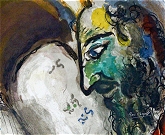 08.11.20 (Av 21, 5780) Shalom chaverim. The way we choose to see is ultimately a spiritual decision. In this "Daily Dvar broadcast, I discuss the "Torah of the Good Eye" and the spiritual need to seek goodness in everyday reality. I hope you will find it helpful.
Struggle and Shalom...  08.11.20 (Av 21, 5780) In our Torah reading for this week (i.e., parashat Re'eh) it is written: "You shall not worship the LORD your God in that way" (Deut. 12:4), which here refers to Canaanite practices of idolatry that were based on mystery and superstition. Unlike these religious cults that were based on vain speculations, however, the Jews were duty-bound to carry out God's will as expressed by the truth of divine revelation. Our father Abraham was given revelation of Torah (Gen. 26:5) and at Sinai moral truth was enshrined in the Ten Commandments (Exod. 24:12; Deut. 5:22). A basic assumption of Torah therefore is that "ought implies can," or that we are genuinely responsible to know and to do moral truth. Unlike the ancient "mystery religions" that abandoned themselves by "celebrating" the lower nature, the Torah insists on overruling our base impulses and finding peace in the midst of the struggle to walk in righteousness. Therefore we do not understand the Hebrew word "shalom" (שָׁלוֹם), or "peace," to simply mean the absence of strife, but rather "wholeness," "completeness," "healing" -- the integration of the heart and mind that comes through catharsis and personal struggle (Gen. 32:28). Faith does not mean passivity, but protest -- "arguing" for (and even sometimes arguing with) heaven, reminding God of his promises, lamenting over the divine absence; finding courage to oppose the status quo, and repeatedly appealing to heaven "be'khol levaveinu" (בְּכָל־לְבָבֵנוּ) -- with all our hearts -- precisely because we believe that our prayers can affect even the divine decrees... True faith confesses to "move mountains into the sea" (Mark 11:23) and refuses to let go of God until it receives the promised blessing to become "Israel" (Gen. 32:26).
Torah of a Good Eye (תּוֹרָה שֶׁל עַיִן טוֹבָה) 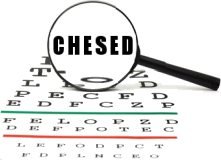 08.10.20 (Av 20, 5780) Our Torah for this week (i.e., parashat Re'eh) directs us to look with compassion upon the needy and to suppress our selfish impulses: "Take care lest there be an unworthy thought in your heart ... and your eye look grudgingly on your poor brother, and you give him nothing, and he cry to the LORD against you, and you be guilty of sin (Deut. 15:9). The Hebrew verb translated "take heed" is an imperative urging us to be careful about how we think, since our thoughts affect our hearts, and our hearts affect our choices and actions. Suspicious or cynical thoughts are a symptom a hard heart, that is, a "difficult" heart that has trouble feeling sympathy for others. Note that the word translated "unworthy" (in the phrase "unworthy thought") is beli'al (בְּלִיַּעַל), which, according to Samson Raphael Hirsch, derives from the preposition be'li (בְּלִי), meaning "without," and ya'al (יַעַל), meaning "to progress," suggesting thinking that is feckless, stunted, profane, and useless. Worthy thinking, on the other hand, is fruitful as looks for the good in others and extends chesed, as it is written: ῾Η ἀγάπη ...οὐ λογίζεται τὸ κακόν, "love does not think evil" (1 Cor. 13:5) and ῾η ἀγάπη συγχαίρει δὲ τῇ ἀληθείᾳ, "love rejoices in the truth" (1 Cor. 13:8).
The LORD wants us to be willing to help others who are in need... Regarding the case of a poor brother Torah says: "You shall give to him freely (i.e., naton titten lo: נָתוֹן תִּתֵּן לוֹ, "giving you shall give") and your heart shall not be grudging when you give to him, because for this reason the LORD your God will bless you in all your work and in all that you undertake" (Deut. 15:10). Don't miss the connection here: you are blessed in order to give to those in need. Moreover, the Scripture promises that "whoever is generous to the poor lends to the LORD, and he will repay him for his deed" (Prov. 19:17; cp. Prov. 28:27).
In our Scriptures we read: "Whoever diligently seeks good seeks favor, but evil comes to him who searches for it" (Prov. 11:27). The one who seeks good is called shocher tov (שׁחֵר טוֹב), "a seeker of good." The shocher tov uses the "good eye" (i.e., ha'ayin ha'tovah: הַעַיִן־הַטּוֹבָה) to see worth and potential in others. The one who searches out evil, on the other hand, is called doresh ra'ah, "a searcher of evil." The doresh ra'ah has an evil eye (ayin ha'ra) that is stingy, critical and faultfinding. The proverb may therefore be stated this way: When you seek the good of others, you will find God's favor (ratzon), but when you search for evil in others, it becomes your own. As the Baal Shem Tov once said, "When we see faults in others, we must understand that they only reflect the evil within ourselves." Likewise King David said, וּתְפִלָּתִי עַל־חֵיקִי תָשׁוּב, "my prayer shall turn back upon my breast" (Psalm 35:13). Some prayers are conscious words spoken to God, whereas others are expressions of heart attitudes. Our proverb teaches that when we harbor indifference, ill will, or resentment toward others, we hurt ourselves; when we favor others and desire their blessing, on the other hand, we will find God's favor and blessing.
The heart looks through the eye.... A good eye (i.e., ayin tovah: עַיִן טוֹבָה) - sometimes called a "beautiful eye" (עין יפה) - refuses to think evil about others (it "does not impute the bad" - οὐ λογίζεται τὸ κακόν - as in 1 Cor. 13:5), but it rejoices in the truth – even if such truth is found only in the hope of a future good (1 Cor. 13:7). The good eye is the instrument of a giving heart that looks upon the needs and pains of others with genuine compassion. An "evil eye" (i.e., ayin hara: עַיִן רָעָה), on the other hand, is cynical, jaded, envious, and unsympathetic to other people and their struggles... Using a good eye takes from the treasure within the heart and gives it out freely to others: "The good person out of his good treasure brings forth good, and the evil person out of his evil treasure brings forth evil" (Matt. 12:35). There never is a risk that true compassion may be given away without warrant from heaven. In the future judgment to come, I'd rather be found guilty of "casting pearls before swine" than to be found guilty of withholding love from others...
The Torah of Love...  08.10.20 (Av 20, 5780) When considering the matter of teshuvah (i.e., returning to God), it is vital to understand that God does not love you based on your obedience, though his love for you will lead you to obedience... It is only after accepting that you are accepted despite yourself -- despite your inherent inability to please God, despite your incurably sick heart, despite your disobedience, sin, and so on -- it is only then that earnest, Spirit-enabled obedience may spontaneously arise within your heart. In that sense "obedience" is like falling in love with someone. It is your love that moves you to act and to express your heart, and were you prevented from doing so, you would undoubtedly grieve over your loss... Therefore the "law of the Spirit of Life in Messiah" is first of all empowered by God's grace and love. We walk by faith, hope, and love - these three. And this explains why the very first step of teshuvah (repentance) is to love God: Shema! Ve'ahavta et Adonai... The first work of faith is to believe in the miracle that God's love is "for-you-love..." "The Christian is in a different position from other people who are trying to be good. They hope, by being good, to please God if there is one; or -- if they think there is not -- at least they hope to deserve approval from good men. But the Christian thinks any good he does comes from the Christ-life inside him. He does not think God will love us because we are good, but that God will make us good because He loves us; just as the roof of a greenhouse does not attract the sun because it is bright, but becomes bright because the sun shines on it" (C.S. Lewis: Mere Christianity). If you find yourself operating from a sense of God's conditional acceptance, you will undoubtedly need to repeat the same sins over and over until your heart is finally convinced of its incurably wretched state. You must first be utterly sick of yourself to believe in the miracle of God's deliverance. Only after this will the message of Messiah find opportunity to speak...
Education for Eternity... 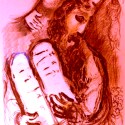 [ The following entry concerns this week's Torah reading, parashat Re'eh... ] וְיָדַעְתָּ עִם־לְבָבֶךָ ve·ya·da'·ta · eem - le·va·ve'·kha "Know within your heart that, as a man disciplines his son, Click to listen and learn the Hebrew text:
The Blessing or the Curse...  08.09.20 (Av 19, 5780) Our Torah portion this week (i.e., parashat Re'eh) begins, "See (רְאֵה), I give before you today a blessing and a curse: the blessing (הַבְּרָכָה), if you obey the commandments of the LORD your God, which I command you today, and the curse (הַקְּלָלָה), if you ... turn aside from the way that I am commanding you today, to go after other gods that you have not known" (Deut. 11:26-28). We obtain God's blessing (i.e., berakhah: בְּרָכָה) when we obey the LORD, and our decision to obey manifests the blessed state of walking before the Divine Presence (the direct object marker et (את) before the word "the blessing" alludes to the blessings of "Aleph to Tav," that is from Yeshua, as described in Lev. 26:3-13). As King David said, "I have set (שִׁוִּיתִי) the LORD always before me..." (Psalm 16:8). David made a choice to "set" the LORD before his eyes, for he understood that opening his eyes to Reality was the only path of real blessing.
Note: "See, I am setting before you this day a blessing and a curse: the blessing, if you obey the commandments of the LORD your God, which I command you today, and the curse, if you do not" (Deut 11:26-28). Some of the sages say this admonition constitutes a severe reprimand of their immaturity. Forty years after receving the Torah at Sinai and the people still need to be cajoled like children with promises of rewards and threats of punishments? Those who are mature in their faith recognize good and evil for what they are: they seek the good because it is the way of truth and life. It is a sign of carnality to seek God because of the manna he provides rather than to seek him as the giver of life itself....
A Circumcised Heart...  [ The following entry is related to parashat Eikev. Shabbat Shalom chaverim! ] וּמַלְתֶּם אֵת עָרְלַת לְבַבְכֶם oo·mal·tem · et · ohr·laht · le·vav·khem "Circumcise the foreskin of your heart, Physical circumcision represents a sign or mark of inclusion; it is a token that you are one of God's family, a Jew, though it is only a sign or token. Spiritual circumcision is an inner operation of the heart that marks you a true child of heaven. It is about your identity and purpose. Therefore we see the paradox that some physical Jews are not spiritual Jews, and some spiritual Jews are not physical Jews (though some are both), as the Apostle Paul said: For no one is a Jew who is merely one outwardly, nor is circumcision outward and physical. But a Jew is one inwardly, and circumcision is a matter of the heart, by the Spirit, not by the letter. His praise is not from man but from God (Rom. 2:28-29).
Thou Shalt be Satisfied... 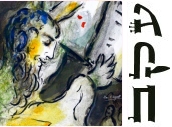 [ The Torah reading for this week is parashat Eikev, traditionally read during Shabbat Va'tomer, the second "Sabbath of consolation" after Tishah B'Av. ] וְאָכַלְתָּ וְשָׂבָעְתָּ וּבֵרַכְתָּ אֶת־יְהוָה אֱלהֶיךָ ve·a·khal'·ta · ve·sa·va'·ta · oo·ve·rakh'·ta · et- Adonai · e·lo·he·kha "And you shall eat and be satisfied, and bless the LORD your God It is written: "Oh, taste and see that the LORD is good! Blessed is the man who takes refuge in him! Oh, fear the LORD, you his saints, for those who fear him have no lack" (Psalm 34:8-9). We can only "taste and see" when we are earnest however, when we seek God with passion... When you pray, lift up your heart and soul to God, asking for the miracle to surrender to Him in the truth. Where it says, "with all your heart" (בְּכָל־לְבָבְךָ), present before him all your passion and desires; your hopes and your needs, your fears and your anger; and where it says, "with all your soul" (וּבְכָל־נַפְשְׁךָ), offer before him your very soul, as if to be sacrificed in his service; and where it says, "with all your muchness" (וּבְכָל־מְאדֶךָ) offer to him all your strength, all your means, and all your dreams. Ask to be filled with the Ruach HaKodesh to be enabled to apprehend the glory of God in the face of the Messiah (בִּפְנֵי הַמָּשִׁיחַ), through whom we are being transformed for the glory of God.
Idolatry and Rage...  08.07.20 (Av 17, 5780) We are warned not to destroy ourselves by allowing bitterness, anger, or fear to consume our hearts. In our Torah this week (Eikev) we read: "And you shall not bring an abominable thing (תּוֹעֵבָה) into your house and become devoted to destruction like it" (Deut. 7:26). The sages of the Mishnah said that yielding to rage is equivalent to idol worship and should never be brought into the home. Indeed, rage is linked with avodah zarah - idolatry - because it exalts the ego and claims that the Lord can't (or won't) help you in your moment of testing or need. The Scriptures are clear, however, that "there is no test given to you that you cannot handle with God's help" (1 Cor. 10:13), and we are invited to come boldly before the Divine Presence to find just such help in our time of need (Heb. 4:16). Believing that you can't overcome your fear or anger problem is therefore a form of idolatry. As is written: Lo yiheyeh vekha el zar (לא־יִהְיֶה בְךָ אֵל זָר) -- "there shall be no foreign god within you" (Psalm 81:9), which means that we must expressly deny the ego's demand to have its will be done. Being full of a sense of self-importance is to be enslaved to vanity and to have a foreign god "within you." God and human arrogance cannot coexist - since the inner world of the arrogant person denies God's rightful place as King. As it is written in our Scriptures: "The wrath of man (קֶצֶף אָדָם) does not work the righteousness of God" (James 1:20). God will indeed help us if we ask according to his will (1 John 5:14-15). Thank you, God. "Blessed is the LORD who delivers us from self-destruction." Amen. בָּרוּך יהוה שֶׁמַצִיל אוֹתנוּ מֵהַרֵס עַצְמִי ba·rookh · Adonai · she·ma·tzeel "Blessed is the LORD who delivers us from self-destruction."
The Reason for Creation... 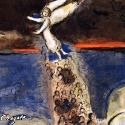 08.07.20 (Av 17, 5780) When the LORD gave the Ten Commandments, He did not begin by saying he was our Creator, but rather our Redeemer: "I AM the LORD your God (אָנכִי יְהוָה אֱלהֶיךָ), who brought you out of the land of Egypt, the house of slavery" (Deut. 5:6), rather than saying, "I AM the LORD your God, Creator of heaven and earth" (Gen. 1:1). The LORD refers to himself as our Savior first, since creation is designed to demonstrate His redemptive love given through Yeshua, the "Lamb slain from the foundation of the world" (Rev. 13:8; 1 Pet. 1:18-20; Eph. 1:4; 2 Tim. 1:9). "All things were created by Him (i.e., Yeshua), and for Him" and in Him all things consist (συνεστηκεν, lit. "stick together") (Col. 1:16-17). Creation therefore begins and ends with the love of God as manifested in the Person of Yeshua our Messiah, the Lamb of God... He is the Center of Creation - the Aleph and Tav - the Beginning and the End (Isa. 44:6; Rev. 1:17). All the world was created for the Messiah: "For from him and through him and to him are all things. To him be glory forever. Amen" (Rom. 11:36).
Your Reason for Being... 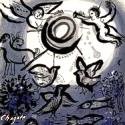 08.06.20 (Av 16, 5780) Your faith must mean something to you if it is to mean anything to God, for "without faith it is impossible to please him" (Heb. 11:6). There must be agreement between your heart and what is real. The LORD must be your "ultimate concern," the passion of your heart, your desperate treasure, or he will be as nothing to you (Matt. 13:12; Luke 8:18). God's Name is Savior, Healer, Redeemer - the One who is everlastingly interested in your life (Heb. 4:13). As the late Abraham Heschel once remarked, "God is of no importance unless He is of supreme importance." Likewise King David said, echat sha'alti me'et Adonai, otah avakesh: "One thing I ask of the Lord; that is what I will seek" (Psalm 27:4). David asked for one thing – not many things. He did not come with a litany of requests. He was not double minded. He had focus. As Kierkegaard said, "purity of the heart is to will one thing." David sought the best he could find. He wanted the "pearl of great price."
The most important thing in life is to decide what is the most important thing in life - and then to act accordingly. Time is short for all of us, and it is more vital than ever to find healing for our woundedness. We have to quit pretending to be what we aren't and learn to be honest and vulnerable. Spirituality without honesty and humility is a sham. If you don't know how to begin, then begin there - by knowing your confusion, your need for the miracle of God's help and direction... For instance, if you don't know how to really love, then confess your heart's condition and pray for the miracle you need. It is a great mercy to be broken, in desperate need of heart, afflicted, tested, and in mourning. As it is written, "God has compassion for the lowly and broken, and saves the souls of the bankrupt ones." יָחס עַל־דַּל וְאֶבְיוֹן ya·chos · al-dahl · ve·ev·yohn "He has compassion on the poor and needy, Click to listen and learn the Hebrew text: When God said, "Let there be light, and there was light" (Gen. 1:3), He seemed to put on light as a robe of the Divine Majesty and Kingship: He wrapped Himself with radiance as a tallit gadol... Da lifnei mi attah omed (דַּע לִפְנֵי מִי אַתָּה עוֹמֵד) – "Know before whom you stand." The whole earth is lit up with God's glory, and every bush of the field is aflame before us -- if we have eyes to see (Isa. 6:3). May it please the LORD to open our spiritual eyes so that we can behold more of His glory and majesty in this hour... Amen.
The Divine Light... 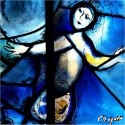 08.06.20 (Av 16, 5780) "If I say, surely the darkness shall cover me ... I realize the night shines as the day and that nothing hides from your radiance" (Psalm 139:11-12). We have to trust that God is in our darkness, in the silence, in the unknown... You come out of the shadows when you admit that you act just like other people, that you are human, in need of reconciliation yourself... Above all you need God. You need help. You need a miracle to help you to truly love. You may find excuses for many things, but you cannot escape the "wretched man that I am" reality that is grounded in your fears. God sees in the darkness and is present there, too. When you feel alone, like an unbridgeable gulf lay between you and all that is good; when you feel like you want to scream but are afraid that even then no one would hear, may the LORD shine His light upon you... Amen, may His light shine upon you.
Heeding the Call of Hope...  08.06.20 (Av 16, 5780) The only way out of the painful ambiguity of life is to hear a message from the higher world, the Heavenly Voice, that brings hope to our aching and troubled hearts: "Faith comes by hearing the word of Messiah - ῥῆμα Χριστοῦ" (Rom. 10:17). And yet what is the meaning of this message if it is not that all shall be made well by heaven's hand? There is hope, there is hope, and all your fears will one day be cast into outer darkness, swallowed up by God's unending comfort... "Go into all the world and make students (תַּלְמִידִים) of all nations" (Matt 28:19), and that means sharing the hope that what makes us sick - our depravity and despair - has been healed by Yeshua, and that we escape the gravity of our own fallenness if we accept his invitation to receive life in him. "For it is you who light my lamp; the LORD my God outshines my darkness." כִּי־אַתָּה תָּאִיר נֵרִי kee · a·tah · ta·eer · nei·ree "For it is you who light my lamp; Click to listen and learn the Hebrew text:
Exercising faith means actively listening to the Eternal Voice, the Word of the LORD that calls out in love in search of your heart's trust... To have faith means esteeming God's love for you, that is, understanding that you truly matter to God, and that the Divine Voice calls out your name, too.... Living in faith means consciously accepting that you are accepted by God's love and grace. Trusting God means that you bear ambiguity, heartache, and darkness, yet you still allow hope to enlighten your way.
Making Room for Wonder... 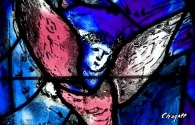 [ The following is related to our Torah reading for this week, parashat Eikev.... ]
Prophetic Listening... 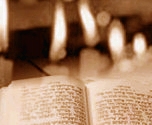 08.06.20 (Av 16, 5780) A verse from our Torah portion this week (i.e., Eikev) recalls Yeshua's words that "every scribe who has been trained for the kingdom of heaven is like a master of a house, who brings out of his treasure what is new and what is old" (Matt. 13:53). Rashi noted that the phrase often translated, "And it shall come to pass if you diligently hear" in Deut. 11:13, i.e., ve'hayah eem shamo'a teeshme'oo (וְהָיָה אִם־שָׁמעַ תִּשְׁמְעוּ), is grammatically puzzling, since the Hebrew literally reads "if you hear, you will hear," which suggests that as we listen attentively to the words of Torah, we will hear more, and we will encounter spiritual connections and applications that are new and ready for this hour. The early sages commented: "If you listen to the old, you will listen to the new" (Berachot 40a). Focusing our attention on the commandments even while in exile is likened to practice for the world to come, since then they will not be new to you when the final redemption appears. Happy are those who love the Torah. More light comes as we live in the truth (John 13:17). As Yeshua also said: "For to the one who has, more will be given, and he will have an abundance, but from the one who has not, even what he has will be taken away" (Matt. 13:12).
The Holiday of Tu B'Av...  08.05.20 (Av 15, 5780) Today is the 15th of Av (i.e., Tu B'Av), the "holiday of love." Just as Yom Kippur originally celebrated the reconciliation of Israel to the LORD after the sin of the Golden Calf, so Tu B'Av originally celebrated the reconciliation of Israel for the Sin of the Spies. Therefore both the fifteenth of Av and Yom Kippur became joyous times celebrating forgiveness and restoration to the LORD. The Babylonian Talmud (Ta'anit 31a) quotes Shimon ben Gamliel as saying, "Israel had no holidays as joyous as the fifteenth of Av and the Day of Atonement, when the maidens of Israel would go out and dance in the vineyards... What were they saying: Young man, consider whom you choose to be your wife..."
The Torah of Manna...  [ The following is related to our Torah reading for this week, parashat Eikev.... ]
God who needs nothing, loves into existence wholly superfluous creatures in order that He may love and perfect them. He creates the universe already foreseeing ... the buzzing cloud of flies above the cross, the flayed back pressed back upon the uneven stake, the nails driven through the mesial nerves, the repeated incipient suffocation as the body droops, the repeated torture of back and arms as it is time after time, for breath's sake, hitched up. If I may dare the biological image, God is a 'host' who deliberately creates his own parasites; causes us to be that we may exploit and 'take advantage' of Him. Herein is love. This is the diagram of Love Himself, the Inventor of all loves. - C.S. Lewis: The Four Loves
Our Good Shepherd...  08.05.20 (Av 15, 5780) The walk of faith is one of "holy suspense," trusting that God is on the other side of the next moment, "preparing a place for you" (John 14:3). In the present, then, we live in unknowing dependence, walking by faith, not by sight. For "hope that is seen is not hope; for who hopes for what he sees?" (Rom. 8:24). This is the existential posture of faith - walking in darkness while completely trusting in God's daily care. Our task at any given moment is always the same - to look to God and to accept His will. This is where time and eternity meet within us, where God's kingdom is revealed in our hearts. Therefore Yeshua taught us: "Don't be anxious about tomorrow, for tomorrow has its own troubles. Live one day at a time" (Matt. 6:34). It makes no sense to worry about the future if the LORD is the Good Shepherd who tenderly watches over your way (Psalm 23:1). יְהוָה רעִי לא אֶחְסָר Adonai · ro·ee · lo · ech·sar "The LORD is my shepherd; I shall not lack. "Yea, even if I walk in the valley of the shadow of death, I will fear no evil, for you are with me" (Psalm 23:4). O God of Light, Light of the world, surely You know my need for light as I look to You, especially when darkness tries to extinguish my hope. Despite my inability to see you now, help me to know that you are with me; let "thy rod and thy staff comfort me" and lead me closer to you. Lord, when I am afraid, quicken the faith you have put within my heart. Be Thou my Shepherd in my darkness, O Lord my God...
The heart of faith senses the LORD's presence, even in the darkness, and hears the Spirit saying, "I am with you..." Love hopes all things and believes even in the midst of troubles. I do not see the road ahead of me, I cannot know for certain where it will end. Nor do I really know myself, and the fact that I think I am following your will does not mean I am actually doing so. But I believe the desire to please you does in fact please you, and I hope I have that desire in all that I am doing. I hope that I will never do anything apart from that desire. And I know that if I do this you will lead me by the right road, though I may know nothing about it. Therefore, I will trust you always, though I may seem to be lost and in the shadow of death. I will not fear, for your are ever with me, and you will never leave me to face my perils alone. -- Thomas Merton: Seeds of Contemplation "Who among you fears the LORD and hears (שָׁמַע) the voice of his Servant? Let him who walks in darkness and has no light trust in the Name of the LORD and rely on his God... I will lead the blind in a way that they do not know, in paths that they have not known I will guide them. I will turn the darkness before them into light, the rough places into level ground. These are the things I do, and I do not forsake them" (Isa. 50;10; 42:16).
Divine Light and Healing... 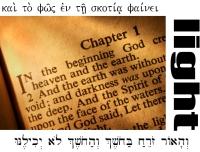 [ Sometimes it can be helpful to use "non-linear" methods to consider Scripture, though of course we must first always read in context while using logic and the historical-grammatical method to ascertain the truth of God. The following, however, explores a bit of the "esoteric" side of understanding the words "light" and "healing" based on discussion of various Torah sages who have used gematria and other approaches to help elicit additional insight into the words. ] 08.05.20 (Av 15, 5780) The Torah begins with the the famous words "in the beginning [God] created" (בראשׁית ברא) which some sages say can be read as "it was created for the head" (בראשׁ יתברא), referring first of all to the Messiah who is the head over all (Col. 2:10), but also to the intellect or mind that reflects the image of God. Recall that the first act of creation was that of light: "God said, 'Let there be light, and there was light" (Gen. 1:3). Now light itself is a mysterious thing - a "wave" or a "substance" depending on how you consider it - a connection between the spiritual and the physical realms.
In Hebrew light is called "ohr" (אור), a word formed from three letters Aleph (א), Vav (ו), and Resh (ר). The letter Aleph is the "father" of the Aleph-Bet, whose original pictograph represents an ox, symbolizing strength. It's numerical value is one and it is a silent letter. Aleph therefore is preeminent in its order and alludes to the ineffable mysteries of the oneness of God. Indeed, the word aluph (derived from the name of this letter) means "Master" or "Lord." Note that Aleph is formed from the letter Vav with two Yods (י), one ascending and the other descending. The gematria for these parts add up to 26 (Yod+Yod+Vav), the same number as the sacred Name YHVH (יהוה), also indicating a link between the "three-in-one" Aleph and God Himself. The letter Vav (ו) originally looked like a hook or nail, and in Biblical Hebrew it is used as connective prefix meaning "and." Symbolically Vav pictures a conduit or connection between heaven and earth. The letter Resh (ו), as mentioned above, represents the head, and by extension, intelligence, the mind (לֵבָב), comprehension, uncovering (ἀλήθεια), remembering, and revelation.
Gratitude and Seeing...  08.04.20 (Av 14, 5780) From our Torah this week (i.e., parashat Eikev) we read: "And you shall bless the LORD your God for the good..." (Deut. 8:10). Whenever we derive benefit or enjoyment from something we are to bless (i.e., thank) God for his goodness. Indeed the Hebrew term for gratitude is hakarat tovah (הַכָּרַת טוֹבָה), a phrase that means "recognizing the good." The heart looks through the eye, and therefore how we see is ultimately a spiritual decision: "If your eye is "single" (i.e., ἁπλοῦς, sincere, focused)," Yeshua said, "your whole body will be filled with light" (Matt. 6:22). When we see rightly, we are awakened to God's Presence in the little things of life, those small miracles and "signs and wonders" that constantly surround us. The good eye of faith sees hundreds of reasons to bless God for the gift of life (1 Cor. 10:31; 1 Thess 5:18; Psalm 103:1-5). As it is written, the Holy One "inhabits the praises" of his people (Psalm 22:3).
The thank offering mentioned in the Torah (i.e., zevach ha-todah: זֶבַח הַתּוֹדָד) reappears in the New Testament. In the Book of Hebrews were are instructed to "continually offer up a sacrifice of thanks (זֶבַח תּוֹדָה) to God, that is, the fruit of lips that acknowledge his Name" (Heb. 13:15). It is interesting to note that the Greek verb used to "offer up" (i.e., ἀναφέρω) is used to translate the Hebrew verb "to draw near" (karov) in Leviticus. In other words, the "offering up of thanks" for the sacrifice of Yeshua functions as "korban" and draws us near to God. Thanking God for personal deliverance constitutes "right sacrifices" (זִבְחֵי־צֶדֶק) as we draw near to God in the blessing of His love (Psalm 4:5; Heb. 7:19).
The first matter to be thankful for is the blessing for your existence itself. Rabbi Bunim would begin his teachings with these words: "We thank you, who are blessed and who are the source of all blessing, that you are manifest and hidden. Then he continued: "A fearless man must feel God as he feels the place on which he stands. And just as he can't imagine himself without a place to stand on, so he must in all simplicity grow aware of God who is the place (ha'makom) of the world and comprises it. But at the same time he must know that He is the hidden life that fills the world" (quote from Buber: Collected Hasidic Sayings).
Believing in Love...  08.04.20 (Av 14, 5780) In our Torah portion this week (i.e., parashat Eikev) we read: "But now, Israel, what does the LORD your God ask from you ... but to love him with all your heart and with all your soul?" (Deut. 10:12). But how are we able to love God be'khol levavka (בְּכָל־לְבָבְךָ) – "with all our heart" – and be'khol nafshekha (וּבְכָל־נַפְשֶׁךָ) - "with all our soul," apart from healing of the brokenness that makes our hearts divided and sick? That is what the redemption from Egypt was about: we were personally chosen by God, redeemed by his grace, led out from from cruel bondage, only to be led into the desert, away from the world, where we slowly began to understand that we were valued, cared for, and beloved of God. We believed in the possibility of promise, of covenant... Only then could we hear the request from heaven: "Now love Me..." In other words, we can only truly love God by knowing we are beloved by God, and the invitation to love him is a response of his great passion for you (1 John 4:19). Accept that you are accepted in the heart of the Beloved (Eph. 1:4-6). דֶּרֶךְ־מִצְוֹתֶיךָ אָרוּץ de'·rekh -meetz·vo·tey'·kha · a·rootz "I will run the way of your commandments, Click to listen and learn the Hebrew text:
We love because He loves us (and we receive and accept that love). It is the strength of his love that keeps you, not the strength of your own... Nevertheless it seems to be the pattern of God's grace to bring affliction and trouble into our lives so that we will begin to seek the Presence of God (i.e., the "troubles of love"). We all are delivered from Egypt by the blood (i.e., the love) of God in the tribulation of hard exile. After all, how many of us came to know the LORD apart from the pain that comes from apprehending our own slavery to inner brokenness? Indeed it is a "severe mercy." Therefore our Savior says: "Truly, truly, I say to you, unless a grain of wheat falls into the earth and dies, it remains alone; but if it dies, it bears much fruit" (John 12:24). The hard "outer shell" of the seed must be broken so that the life of the Spirit can come through... The commandment to love the LORD, then, only finds its voice after we come to faith, after we experience the Holy Spirit's power, indeed, after we are made alive from the dead.
The Whole Commandment...  [ The following is related to our Torah reading for this week, parashat Eikev.... ]
The "whole commandment" is to walk in God's love and to grow into the full stature of his truth. As it is written, tamim yiyeh im Adonai Elohekha: "You shall be wholehearted with the LORD your God - תמים תהיה עם יהוה אלהיך" (Deut. 18:13), and "Fear God and keep his commandments - כי־זה כל־האדם - for this is the whole man" (Eccl. 12:13).
Parashat Eikev - עקב  [ The Torah reading for this week is parashat Eikev, which is traditionally read during Shabbat Va'tomer, the second "Sabbath of Consolation" after Tishah B'Av.... ]
The portion begins: "ve'hayah eikev..." (Deut. 7:12). Here translators differ about how to understand the Hebrew. The JPS version, for instance, renders this as "and if you listen," whereas others render it as, "and because you listen..." The former translation makes the blessing seem conditional upon obedience, whereas the latter reading affirms the obedience that leads to blessing... The Hebrew word eikev (i.e., עקב, "heel," "step"), however, refers to action, and therefore it may be regarded as a prophecy expressing faith that the blessing which God swore on oath will be fulfilled. May it be so for us, chaverim...
|
|||||||||||||||||||||||||||||||||||||||||||||||||||||||||||||||||||||||||||||||||||||||||||||||||||||||||||||||||||||||||||||||||||||||||||||||||||||||||||||||||||||||||||||||||||||||||||
|
Hebrew for Christians |
|||||||||||||||||||||||||||||||||||||||||||||||||||||||||||||||||||||||||||||||||||||||||||||||||||||||||||||||||||||||||||||||||||||||||||||||||||||||||||||||||||||||||||||||||||||||||||
|
|||||||||||||||||||||||||||||||||||||||||||||||||||||||||||||||||||||||||||||||||||||||||||||||||||||||||||||||||||||||||||||||||||||||||||||||||||||||||||||||||||||||||||||||||||||||||||
